#personal interpretation of a traditional practice
Explore tagged Tumblr posts
Note
This is a thoughtful thread!
My read on sexualization in the Zelda series is that it is absolutely meant to be there but that it is also deliberately and thoroughly hidden from direct view. A wry metaphor might be traditional female clothing that covers the body to a degree so excessive that it draws attention to itself.
This policy falls under the general Nintendo "family-friendly" umbrella, i.e., among other things, no overt acts of sex or sexualization, except for highly-implicit and/or socially acceptable manners of sexualization. This has always been a Nintendo mantra with its video games, though it has become much more fervent and consistently enforced in the 21st century. In the old days, in contrast, there would be some pretty wild deviations from this from time to time, such as Link's open use of whorehouses in The Adventure of Link.
Zelda games in particular have always grouped Link's sexuality and sexual behavior within his general muteness, which is to say that it is left completely unspecified and up to the interpretation of the player.
In the first three games (The Legend of Zelda, The Adventure of Link, and A Link to the Past), Link is presented as an archetypal high fantasy adventurer-hero engaged in his personal coming-of-age story. He can be interpreted, as one likes, either as getting together with his contemporary Princess Zelda in the aftermath of each respective game, or as being a gallant knight whose commitment to chivalry means that he practices the "virtue" of chastity despite Princess Zelda's obvious beauty and charm.
Beginning with Ocarina of Time, the games in the series go on to have a long history of potential female love interests (Link's orientation being assumed straight by the developers) who express romantic or strictly sexual interest in Link (to varying degrees of seriousness), while Link himself remains mute on the subject, allowing the player's headcanon to fill the space.
Ocarina of Time in particular is a great study piece, because Link essentially has five clear romantic prospects: Saria, Malon, Ruto, Zelda, and Nabooru whom the narrative (and sometimes the characters themselves) code as romantic interests. Ruto is the prissy socialite who unilaterally declares a romance and serves less as a real romantic prospect and more as the farce of one, though in the strictest sense she is still a legitimate prospect and relationships like these have happened throughout history. Nabooru covers the "older woman" / "sexually liberated woman" / dominatrix trope space, whose romantic declarations are equally unilateral as Rutos, though Nabooru possesses considerably more self-awareness and wisdom, and admits in dialogue at one point that a romance isn't really workable (by lamenting that Link isn't older). Zelda of course is the romance built on high fantasy notions of nobility, shared destiny, and realizing one's full potential (i.e. by marrying the heir to the kingdom). Malon fills the "good wife" romantic space by being by far the most practical, plausible, and likely-to-success of the five prospects, and by being a great complement to and support pillar for Link, as expressed by her provision of Epona and milk. And Saria is something of an interesting case: As a Kokiri she has the body of a child, which leads many progressive pearl-clutchers to try to cancel the idea of Saria as a love interest, but her actual age is unknown and her degree of emotional and intellectual maturity is very high, and moreover she isn't a human: She is a magical creature from a magical world and isn't played as a child at all. So, to me, she fills the "girl next door" / "childhood friend" trope nicely and she represents the love interest for Link based upon lifelong friendship.
Link not only does not explicitly reciprocate any of these: He often seems overwhelmed and scared by the romantic forwardness of most of these five prospects. (Saria and Zelda being exceptions.) This introduces a new layer to the premise: Link, for the duration of OoT, hasn't come of age yet, and is still a child, unprepared for romantic commitment. This is much more prominent in his Child Link form, though even as Adult Link he maintains total agnosticism as part of his muteness and also to prevent the narrative from actually committing canonically to any particular romantic pairing. Ruto, Nabooru, and Saria are ruled out by virtue of becoming Sages who apparently can't live in the overworld anymore. This doesn't seem to apply to Zelda herself, and so by the end of the game the number of romantic prospects is down to just two: Zelda and Malon. And we know by Majora's Mask and Twilight Princess that Child Link doesn't initially, pursue either of these, instead departing to look for Navi, but eventually having children whose bloodline leads to the Link of Twilight Princess.
Ocarina therefore serves as a nice microcosm of the series' relationship with Link's relationships. It is all very coy, very "will they, won't they," very PG, very "family-friendly," and very much left up to the player.
Interestingly, that very much worked for me when I was younger: When I first played the game at Age 17, to me it was obvious that Saria was Link's one true pairing. Shortly thereafter, it became equally obvious to me that, no, actually it was Princess Zelda herself. And that was my headcanon for many years, until eventually, being older and wiser, I realized that, no way, obviously the one true pairing was Malon.
Subsequent games mostly weren't as wrapped up in this notion of multiple romantic prospects. A more refined Zelda formula for romance first showed itself in Twilight Princess, which dispenses with the obviously-implausible prospects and narrows it down to just two: the legendary, mythical, "fulfillment of potential" prospect, in this case not Zelda but the eponymous Twilight Princess, Midna; and the Malon of the game, farm girl and Epona-provider Ilia.
But this "let the player decide" is a double-edged sword, because the lack of certainty can be frustrating. There is a subplot in Twilight Princess where Link rescues Ilia and restores her lost memories, and afterwards the two of them have a private conversation around the campfire that is strongly coded as prenuptial. But then at the end of the game Link leaves Ilia behind in Ordon and goes off in search of adventure, which, much like with Navi, I believe is strongly implied to be a search for Midna, even though he saw Midna leave his world behind and destroy the gateway between them.
Because I am older now, this ending is frustrating because, realistically, Ilia is the only choice. Midna isn't actually a real romantic prospect: Rather, she represents childish dreams of idealized romance. Link's decision to leave Ilia in search of Midna symbolizes, I think, that he hasn't grown up quite yet. And while he "probably" ends up with Ilia in the long run, just as the Ocarina of Time Link "probably" ended up with Malon, this isn't canonical: Canonically, he never takes a partner. And the older I get, the more childish and unsatisfying that becomes. A continual cop-out, by Nintendo, of one of the most obvious facts of life. A decision, so commonplace in storytelling as to be almost ubiquitous, to never actually give closure, because closure stills a person's zeal for something and this can often make for a less dedicated fan.
I think we were all incredibly relieved when, in Skyward Sword, and to my knowledge for the first time in the series, Link finally ended up with an actual, canonical romantic commitment to one specific character, in this case Zelda. The catharsis for fans was amazing, and I think Nintendo took note of it, because we saw more of this going forward, including with the Breath of the Wild games, where Link and Zelda are clearly set up as a couple.
But it's still Nintendo, and there's still so much they just aren't going to show us. And Link is still more or less mute.
I know it's been nearly two years since you said this so you don't have to answer this in any way shape or form if you simply don't remember, but in the post where you and fnord888 talked about Link from the Legend of Zelda series, what exactly did you mean by "lets them keep doing the princess-rescuing quests without awkward questions like you get with Bowser and Peach"?
(about this)
I mean sex.
Bowser isn't the most textually sexualized Nintendo character out there, but he's pretty far along the spectrum- there's the outfit, the muscular physicality, the fact of his having kids, and of course the enduring focus on Princess Peach. Just as sexualization of a female character would usually take a passive or aesthetic form (e.g. a large bust or revealing outfit), the sexualization of Bowser focuses on his active and agentic traits; beyond just the imposing body, the social power of monarchy, and the tendency towards violence, Bowser is a character who pursues and desires women. In a word, he's horny.
(I'm just pointing at this very very briefly rather than going in to details, and none of this is original to me; if you poke around online, you won't have trouble finding some pretty interesting analysis of Bowser's relationship with gender and sexuality. Among other things, he's something of a gay icon.)
It's easy, almost to the point of being reflexive, to read the Peach-Mario-Bowser dynamic as being a love triangle of one sort or another, no matter what the official lore of the games has to say; the form of what we see on-screen matches some very well-worn and explicitly romantic narrative archetypes. Even the official movie made Bowser's attraction to Peach text, rather than subtext.
Tying this back to the original post about Link-
Back then, I was arguing that Link's "silly little guy" factor means that stories about him tend not to be read as sexually motivated. Even as he spends game after game actively in pursuit (in some sense of the term) of a woman, there's no real sense of Link as pursuing Zelda sexually.
Link and Mario are both, sort of, doing the same thing in the same way- exploring dangerous unknown terrain filled with many enemies, in pursuit of a high-status woman. But Mario is a grown (albeit goofy) man with a mustache and a blue-collar background, and his princess is held captive by an amorous and heavily-muscled opponent who wears a spiked leather harness to work; the audience reads these cues and infers a particular set of motives and a particular kind of subtext. Link is a very different silly little guy; his motives are explicitly holy and implicitly chaste. The kind of silly that Link is- and the kind of villain he fights- provides a subtle and I think very interesting contrast with Mario, one that allows for the games to translate Arthurian romances, and the sometimes very strange narrative forms of the knight-errant, to modern and even postmodern audience tastes.
164 notes
·
View notes
Text
Morana is Reborn
“You are the lady of life, the mother of the whole world,
You are the pregnant lady, the mother of the sun,
Wherever you set foot, rye is born,
You make the hearts of men and animals beat.”
—Lelek, Marzanna (translated from Polish)
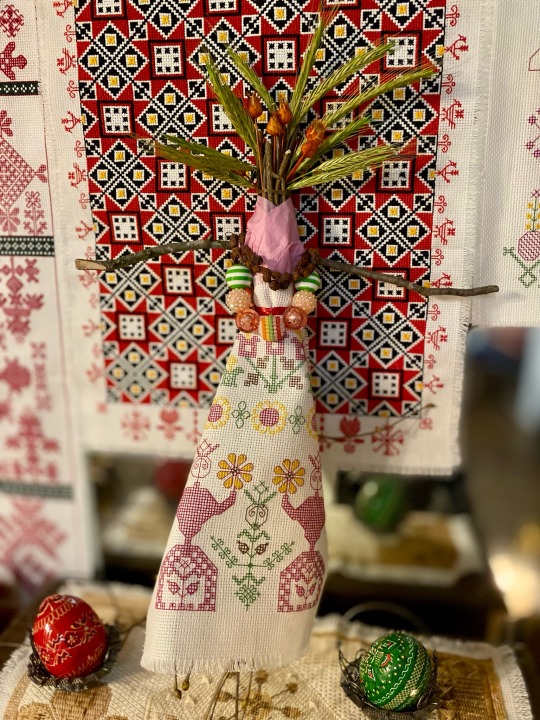
I drown her on St. Matthew’s Day (Feb. 24th), and then set about restructuring the altar into a bower for her to be reborn.
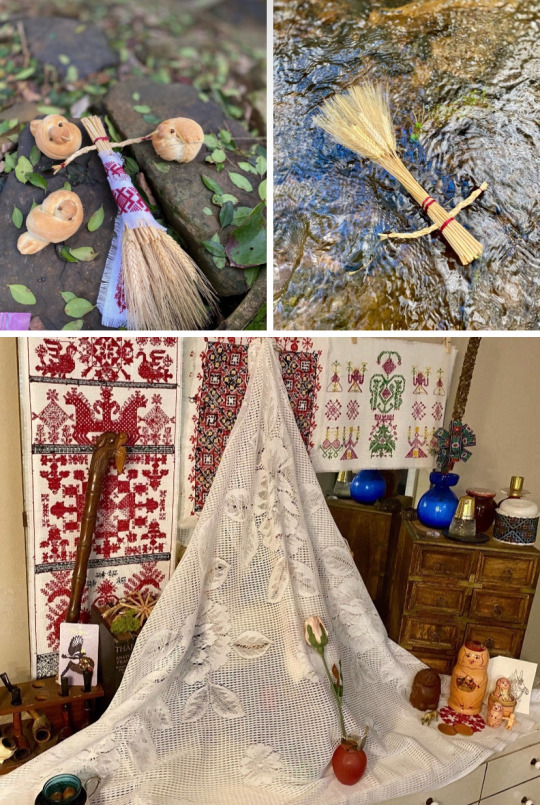
Spring embroideries were hung backwards, and the new Morana (inspired by @zarya-zaryanitsa ‘s beautiful dolly) veiled until Spring arrived. I had decided that this year I was not going to be constrained by the calendar, but rather do things that felt seasonally appropriate for the southern region in which I live—a region where spring comes earlier than the northern lands of my ancestors.
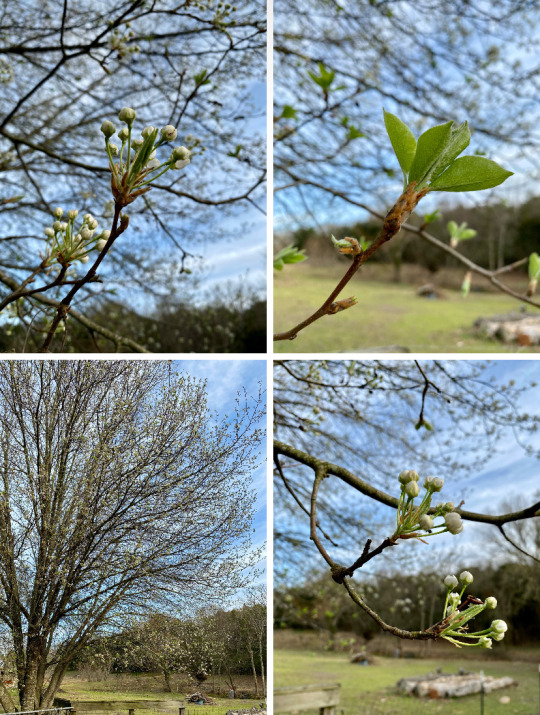
Yesterday on my St. Gregory’s Day mini-pilgrimage around our land I came upon the first new leaves of the year and decided this was the sign that I was waiting for.
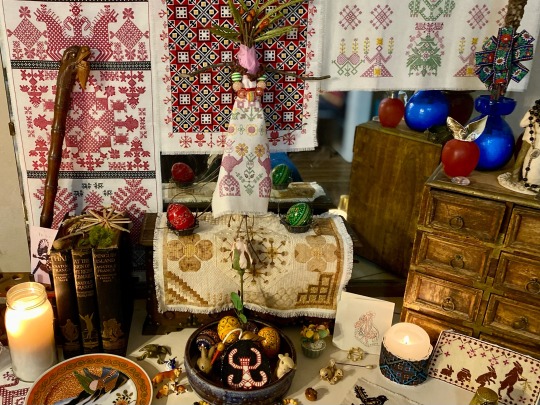
The drowning of Morana (or Marzanna, or Marena, or Mara, or Smrtka . . . ) is an old Slavic tradition and the beginning of my devotional year. Traditionally in the Czech Republic, on the fourth or fifth Sunday of Lent, depending on the region, an effigy of the goddess is thrown into the river to drown; sometimes she is also burned. We know that people have been drowning effigies of the goddess since at least 1420, when it was forbidden by the Catholic church, but probably for much longer. It is a misconception by many that Morana is only a goddess of winter and death.
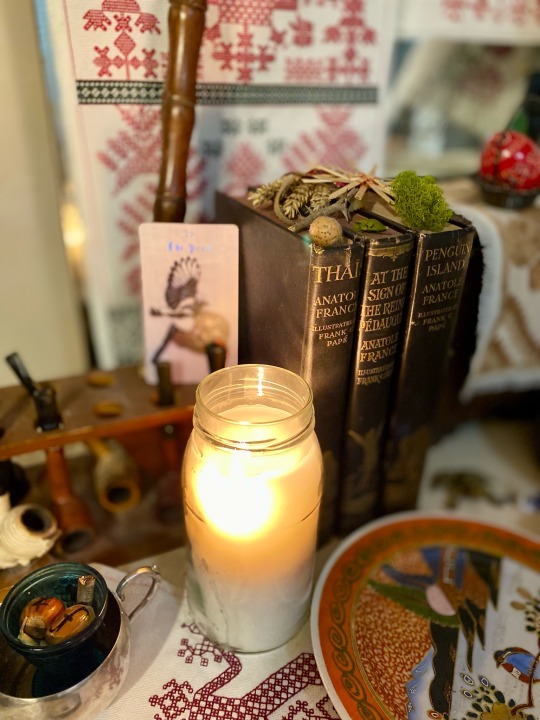
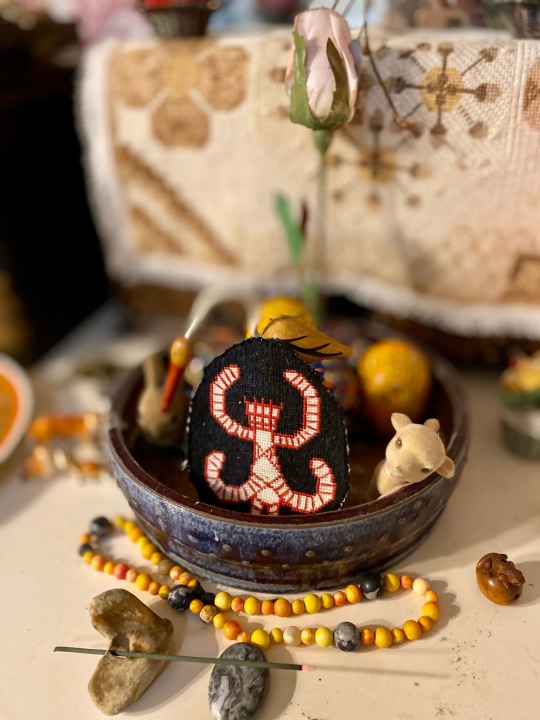
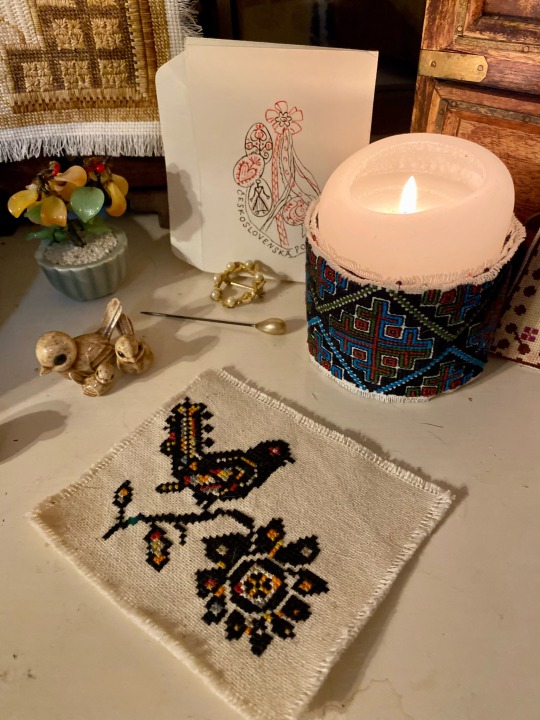
“However, many historical sources and traces of her cult (particularly in the West Slavic beliefs) show clearly that the cold winter is only one of the faces of this goddess. After getting rid of the winter effigy, another similar one was being brought up in a procession around the villages and fields - it was a symbol of spring, the same goddess being reborn after the winter phase and waking up nature’s vital strength for the upcoming growing season. Many of such informations survived in countless folk songs and rituals.” --Lamus Dworski
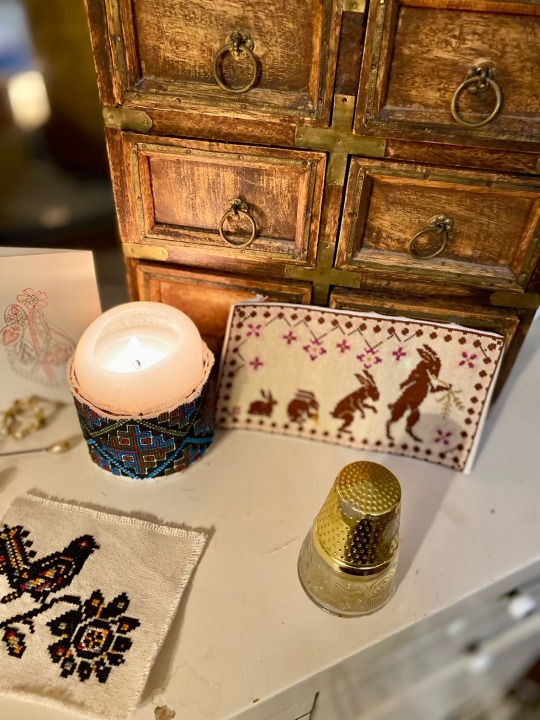
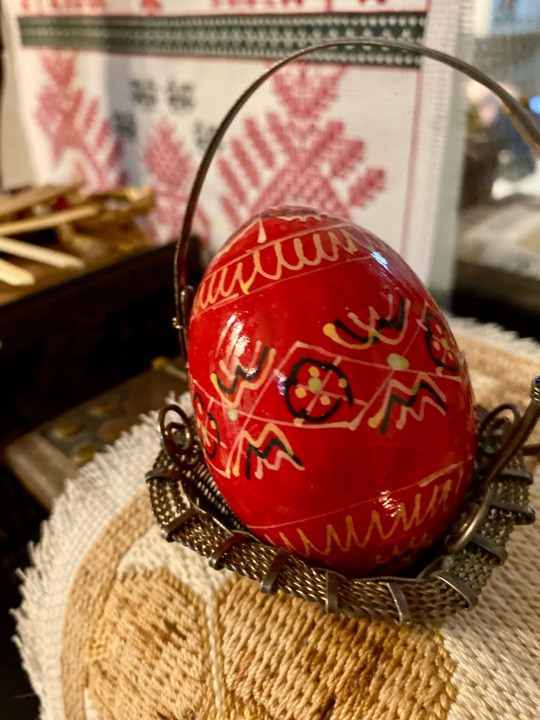
My Spring Morana ritual is two fold. First I drown a dolly that I made the Spring before in the creek that I use as a sacred space for many of my rituals. Then I carry a decked out dolly back up to the house who represents the goddess reborn—and who will be drown the following year.
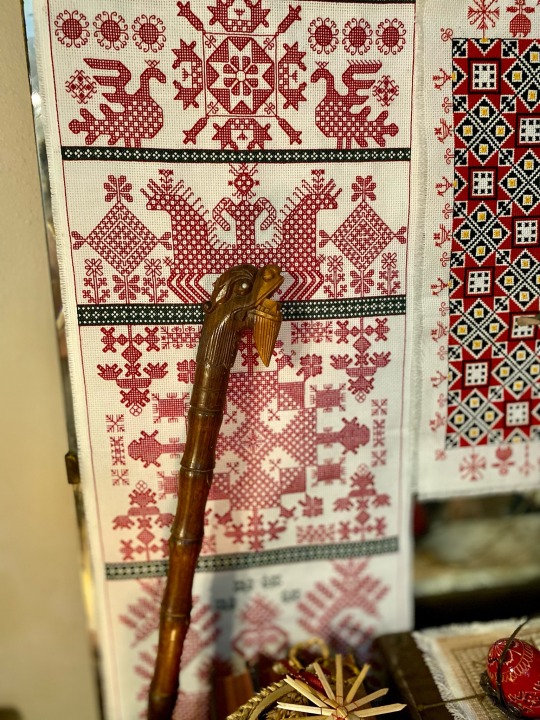
I was excited to place the Sun Goddess Tapestry, completed last summer, upon the altar for the first time for the light half of the year. During the winter season she was hung at Midwinter through Three King’s day to celebrate her rebirth, but then removed until I hung her backwards on St. Matthew’s Day to await the arrival of spring.
@goodfolkbelow @msgraveyarddirt
37 notes
·
View notes
Text
need us to stop being a silly little guy for one second and acknowledge that t0ph is rude and it isn't some funny trait. it's a flaw. its a reaction, sure, because her whole life she'd needed to play the part of being the obedient little girl and her rudeness is a result of wanting to affirm her independence and probs as a legitimate way to exercise her confidence and/or to go about her establishing boundaries or things she didn't like, but it's still a huge flaw.
#listen. u mustn't forget that she lived the majority of her life practically spoiled#sheltered sure. miserable yeah. but she is still incredibly privileged#( which she does acknowledge and/or act it out sometimes ! )#and that sort of privilege didn't rlly go away. u could say that she didn't gain things monetarily#but shes also VERY SKILLED at a VERY young age#that feeds a lot to her ego and mixes up with how much she feels like she needs to compensate for her parents' mistreatment#my girl quite literally does not have time to exercise humility#like. on one hand she EARNS everything she is confident about#but on another YES sometimes the way she expresses things shes frustrated about is downright RUDE#like. the rift is a great example bc my girl was a haaaaater when a.ang just wanted to do an air nomad tradition#lets also not forget that in the show k.atara brought up legitimate concerns abt her not ''stepping in'' when they were gonna camp#in both instances t0ph was just reacting badly because of her past and she didn't know how to VERBALISE LIKE A NORMAL PERSON#thats it. but she still comes off as incredibly rude#thats not cute; thats just rudeness.#and i like pointing this out because (A) i want my writing partners to be aware of this but also (B) for suuuure this can be#a point of tension somewhere down the road#cause i do feel like this will blow up right at her face esp as she slowly enters adulthood and realises her friends are Leaving#and i KNOW my girl is not gonna react well about 80% of the time#and i wonder how that'll tie in to that usual thread when u realised that the theme of breaking into womanhood is basically#realising u're losing the privilege of girlhood. this means: how much can ur mistakes truly be excused ?#at what point can ur anger and frustration stop being smth to coddle ?#you're no longer a novelty. now what ?#GREATEST: INTERPRETATION.
2 notes
·
View notes
Text
alright so during into the spider-verse's introduction to peter b. parker, we see his wedding, and he stomps on the wine glass right? this is a jewish wedding tradition, which makes this version of peter parker jewish (further confirmed in interviews -- however, i believe this is enough by itself). it's a nice nod to the jewish roots of the character.

we get to see a bunch of peter parkers throughout the spider-verse films, and none of them have any explicit religious associations like peter b. parker. except for one!
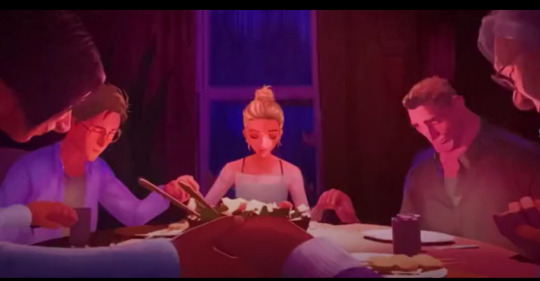
here we have gwen stacy's peter parker and aunt may, from earth-65, saying grace over a meal. from my understanding, this is generally a christian practice -- in judaism, we prefer to say short prayers before eating, and save the long, in-depth ones for afterwards. so to me, this was a clear example of the character being coded as christian. i was a little disappointed that they didn't make peter parker jewish here too, but since across the spider-verse discusses variants and the differences between instances of the same person between different universes, i interpreted this as a continued commentary on peter parker's ethnicity -- although he was initially jewish-coded and one of his two creators, stan lee, is jewish, this is often erased, especially in more modern interpretations of the character.
and then i remembered that this peter parker also literally turns into the lizard.

and y'know what? good call on that one guys.
#arden.txt#judaism#spider verse#spiderman atsv#peter parker#this was entirely spawned by a tweet pointing out that peter was wearing a lizard costume for a frame during the dinner scene and i was lik#'OH NOOOOO THAT'S WHY HE'S CHRISTIANNNN' anywaysss#jumblr#jewish
61K notes
·
View notes
Text
Obkk ghost marriage fic where after kannabi bridge, the Uchiha decide Kakashi can keep the eye but only if he agrees to marry Obito's ghost in a traditional ghost marriage.
(This also means he officially joins the Uchiha clan. Maybe lean into how he knows very little ab his own clan history, so there's like some minor complexes playing off of that as he ultimately takes up the Uchiha name and traditions, effectively abandoning his own -> which could also play interestingly into his negative views of his father at that age. This also means he moves out of his clan compound and into the Uchiha district— which is actually really good for his mental health)
Kakashi doesn't argue, he sees it as the ultimate atonement actually. He's incredibly dutiful but especially so at that age. He'd take it dead fuckin seriously and be the best ghost bride possible. Instead of constantly going to the memorial stone he has like a proper shrine to honor him in the house where he leaves his favorite foods n stuff
Like little 13 year old widower Kakashi w Rin as his witness rip
I'm not the biggest Rin fan bc her canon characterization feels like that usual boring "girl crush turned martyr" (naruto misogony strikes again rip) and I've yet to find any interpretations that really strike me— with one exception.
I don't remember the fic, and Rin only showed up for part of it, but I remember being rlly taken by her in it. It highlighted her being as struck by Obito's death as Kakashi, with her an official mednin working overtime in the hospital as the war ramped up. Also it gave her a smoking habit!! I can appreciate a well played addiction to cope in text. Idk I just read it and kinda went "woah she suddenly feels like a real person to me"
But like, that for Rin here. She's working triple overtime in the hospital, day and night. The war is getting worse and worse and some nights she comes home w her gloves still stained in the blood of her patients from back to back surgeries where her patients died on the table. They have her listed for eye trauma specifically after her successful transplant for Kakashi, and she's proving to be invaluable for the patients w eye based kekkei genkkai. She wants to go into specifically researching and healing for eye bloodline limits, but is struggling to convince the clans to allow her access to that information.
Kakashi's new home is closer to the hospital that Rin's parents, and stuff w her parents is starting to get... tense. It hurts them, to see their daughter struggling like this. To see her coming home with dulled eyes and bloodied hands. To be waken by her nightmares and then not know how to comfort her.
Rin slowly starts staying over with Kakashi more and more and after a while she's just kind of fully moved in, but neither of them actually really talk about it
Let them be best friends w a kind of codependency on eachother that would be concerning if not for how it's very clearly keeping both of their heads afloat as days go on and things get worse.
Queerplatonic besties Rin and Kakashi sharing the same bed so when they wake up screaming they can help eachother go back to sleep easier. Rin likes it when Kakashi summons his ninken to sleep w them. They sleep easier w eachother bc they feel safer knowing they're there to have eachothers back, just like they would on the field
Anyways, Kakashi moves out of his clan compound and into the Uchiha's. He's neighbors with a little 6 year old Shisui and is kind of picked up by the scruff by a lot of Uchiha who have really weird complex feelings ab Obito's death (many of them feeling bad ab not having reached out before to him / seeing him die so young, and then projecting that onto Kakashi)
Kakashi and sometimes Rin kind of accidentally becoming a babysitter for Itachi both bc of proximity and bc Mikoto is friends with Kushina
On that note -> Minato does not really get the ghost marriage thing. He's civilian born, and the practice is really old and hasn't really been used since like, warring states era. So Minato is kind of weirded out and very "uhhh. Are you SURE this is what you wanna do?" But Kakashi seems set, and like, if it helps him cope???
He is however very supportive of getting Kakashi out of the fucking tomb of his father's house and into the much more populated and lively Uchiha clan compound
Minato makes Kakashi ANBU and designates him as his home guard specifically to keep him off the battlefield. He lowkey does the same to Rin (minus the ANBU part) positioning her in the hospital and making sure she's getting that good good mednin education. If pressed on why she doesn't go out as a field medic, he insists it's because she shows too much promise as a healer to risk— not now that they've lost Tsunade. If Rin can grow to be even half as good as she is, it'll be worth keeping her away from the fighting.
Neither Kakashi nor Rin feel very good about this decision (tho hypocritically, they agree w it when it comes to the other, bc ofc they do)
Rin doesn't die bc I say so and Obito does a comedy spit take when he inevitably learns he's legally married to Kakashi under the eyes of the Sage, Amaterasu and all.
#birds fic talk#naruto#kakashi hatake#hatake kakashi#obito uchiha#uchiha obito#rin nohara#nohara rin#obkk#kkob#obikaka#kakaobi#ghost bride au#naruto au#uchiha clan#uchiha#minato namikaze#namikaze minato
2K notes
·
View notes
Text
Creature Comfort

Pairing: Marcus Acacius x Female Reader/OFC
Word Count: 7.6k
Summary:
Waiting out there is General Marcus Acacius. A real man of flesh and blood, strength and power. The legendary Atlas Lion himself.
Your husband-to-be.
Rating: M / 18+ only
Warnings: Language, at least a million historical inaccuracies, referenced smut, references of blood + war + death, weapons, too many lion/animal references and metaphors to count, reader has self-esteem issues, arranged marriage, domestic life, cameo of reader's parents, switching povs,
- Reader has no name and no physical traits described in detail. Reader wears clothes such as a toga + wedding outfit
Author Note: This started as me simply wanting to write a fic where Acacius is compared to a lion and Reader's his wife and then it quickly led to me having a complete emotional breakdown that caused me to quit writing entirely for several months. Not one of my finest moments, but 🤷♀️ that's life I guess. It's nice to finally toss this fic out here, hopefully someone somewhere enjoys it 🧡
Special thanks to @wheresarizona for putting up with my emotional highs and lows and answering some questions about Rome for me and for just being an overall too-nice-for-this-world person I'm lucky to have met on here 💗
The morning of your wedding you can barely stomach your breakfast. Nerves are natural, your mother assures you, watching with a critical eye as the female servants of the house help dress you.
Your impending ceremony has severed your protection of your family’s household gods, leaving you spiritually defenseless until you’re officially wed to your husband. Maybe that is the true source of your worries, dark spirits playing wicked games with your heartstrings. Or maybe it’s your mother’s looming presence coupled with her stubborn determination to see you safely married off, analyzing every inch of your bridal outfit to root out the tiniest of imperfections, that has your stomach tied up in knots.
The wreath atop your head is thick with summer blooms, their scent potent and almost sickly sweet, tickling the inside of your nose. You’d sneeze if not for the veil covering your face, attached to a headband beneath the tangled greenery, its deep yellow color identical to the slippers donning your feet.
You’d personally woven your tunic on your family’s loom, a task expected of every new bride, intertwining every fiber into tangible proof to show your husband you were ready for the responsibilities of managing his household. Linen had been your initial choice, but your mother insisted wool was the better material to repel the forces of evil. The garment is heavy beneath your matching white stola, but rather than irritating there’s something oddly comforting about the weight. Almost like a warm embrace.
It’s tradition for weddings to take place in the home of the bride’s father. You can hear the arrival of guests now outside your room. Friends and relatives and other miscellaneous people here to witness and celebrate the union. Every minute brings you closer to a new stage of your life, and if not for the servants’ steadying hands, your weak knees might send you crashing to the floor. Fainting would surely be interpreted as a bad omen, derailing the whole ceremony before it even truly began.
You suck in a quiet breath, shoving down the worst of your anxieties. This day–your wedding–has been on your mind practically your whole life. You’d learned from a young age the importance of marriages arranged between families for political and financial purposes. You’d also learned you wouldn’t be the one choosing your future husband, that decision would be made by your father alone.
Of course, you’d be lying if you said you didn’t imagine marrying someone who was your own choice. Someone kind and handsome and as loyal as your household’s guard dogs. Someone who loved you above all others.
But waiting for you out there isn’t the imaginary stranger who's starred in your most intimate dreams. Waiting out there is General Marcus Acacius. A real man of flesh and blood, strength and power. The legendary Atlas Lion himself.
Your husband-to-be.
When the pronuba arrives to accompany you to the ceremony, the servants disperse but your mother lingers a beat longer, running her fingers over your shoulders to smoothen out non-existent creases. Neither of you mention the shiny gleam of her eyes or the trembling of your hands.
Then, with a firm nod of her head, your mother declares, “She’s ready,” and leaves without another look to join your father’s side.
Your mother is not prone to lying. If she says you’re ready, then ready you must be.
You take another deep breath before linking your arm through the elder matron’s, but it’s the gentle patting of her hand on yours which calms you most. A reassurance of good things to come.
Stepping out into the atrium, you’re met with a packed crowd, locals and soldiers mixed as one, craning their necks for a glimpse of you. Their clothes resemble yours and the groom’s, another tactic to confuse evil spirits, but human eyes only need to spot your yellow veil to recognize you as the bride. And as for Acacius…
Well. To mistake the Atlas Lion for another would be as foolish as mistaking fire for water. He is unique in all the world.
You see him standing at the altar with the high priest, clad in a purple toga embroidered with a lion’s head in golden thread. A reward in honor of the general’s triumphs in warfare. The placement of the lion above his heart is deliberate, you suspect. A warning of what lies beneath the surface. A guarantee all the tales of his savagery and blood lust passed from mouth to mouth from the battlefields to the city streets are true.
Is it terrible that a part of you–an inane, minuscule scrap of a thing you’ll never verbally acknowledge, not even under oath–is fervently captivated by the notion? You should be listening to the high priest’s prayers to Juno, paying attention to the omens he reads in the entrails of the sacrificed ram upon the altar. But Acacius’ brown eyes, burning with the radiant June sunshine and something else distinctly dangerous, put a flame to your focus and narrow your vision to one central, all-encompassing point.
Is it terrible that you can meet a lion’s stare without a modicum of fear? You wonder how many have been able to say the same, if anyone else at all.
The priest deems the relationship blessed by the gods, carrying on with the proceedings, oblivious to your state of mind. He asks Acacius to make certain his intentions, if you are an acceptable wife.
Acacius draws himself up to full height, an immovable mountain firm in his convictions. “She is mine to me,” the timbre of his gravelly voice drags over you, eliciting a shudder down your spine you pray the elder matron does not notice. “I will want no other.”
Then it is your turn, and your voice is only a little hoarse when you confirm, “He will be my husband. My only choice.”
The slightest quirk of a smile curls the corner of Acacius’ lips. Instinctively, you return it with a small grin of your own. And even though he can’t physically see your face behind the veil, you think, somehow, he does see you.
It’s only after signing the marriage contract with crimson seals that the pronuba places your right hand in Acacius’, officially uniting you as one. The general’s palm is callused, fingers thick and gnarled from past wounds, but you can’t find it in yourself to hate them, or recoil, or do anything else than keep holding on.
“Raise the veil,” the priest says.
You swallow, the fingers of your left hand spasming against your side, then slowly reach for a fistful of the yellow fabric. Pulling it up over your head, you carefully watch the lines of Acacius’ expression, heartbeat fluttering at the way those brown eyes widen, taking you in for the first time. Absorbing everything like it might be his only chance. Like you’re something wondrous worth memorizing.
Acacius starts leaning forward, sending every last thought in your head scattering with his nearness. He’s massive, radiating such intense warmth, thumb stroking a line of heat along your wrist. There’s a fire igniting in your chest, lungs choking on the smoke, yet you’re trembling when he cups your face, the quietest of whines escaping your parted lips.
Please, you start to beg, the whooshing of blood thundering in your eardrums, plea–
Acacius swallows the silent plea with his own mouth, kissing you like a starving man. This isn’t love–no, it’s too soon for such sentiment–this is carnal passion, roaming tongues and clashing teeth like you’re no better than animals committed to the hunt of this new territory, this new taste.
The eruption of applause yanks you back to reality. You tear yourself away with a choked gasp, and it’s satisfying seeing the heave of Acacius’ broad chest with each ragged inhale as you both struggle to catch your breaths. You did that. You’re the reason for the flare of lust in his eyes and smear of spit across his bottom lip.
You’ve heard people say no man’s looks can compete with Adonis’ striking beauty. A fallacy, you realize in that moment upon seeing General Marcus Acacius in purple and gold, dark curls caressed by the gentle breeze, a constellation of freckles along the tendons of his neck, hardened by violence yet holding your hand so heartachingly sweet.
The rest of the world can have Adonis.
And as for you–boldly and selfishly, you’ll keep this man. The legendary Atlas Lion himself.
Your husband.
~~
The wedding feast afterwards is a blur of lavish food and wine, the jovial notes of flutes accompanying fescennine songs with interjections of salutations shouted from inebriated lips. Every touch of Acacius’ hand against your arm, your waist, everywhere sends sparks skittering along your nerves. It’s as bewildering as it is thrilling, like you’re balancing on the edge of a precipice, and you wonder if this is what Icarus felt moments before he flew too close to the sun. Falling, falling, falling…
You can only hope you meet a different, kinder fate.
When the sky begins to change and darken with the promise of encroaching evening time, you find yourself standing in the middle of your childhood home, trying to etch into memory everything from the slope of the roof to the tiny cracks in the stone floor. All the noises and voices seem to fade away, granting you this moment to yourself.
Once you step outside, there will be no familiarity to cling to. You’ll be escorted by the crowd of guests to Acacius’ secondary home—smaller, but no less grand than his main domus in Cosa. A port city to the south you’ll have to learn to navigate from square one—and then, once alone with the general, taken to his bed. His body will be another, far more intricate labyrinth you’ll need to learn and recognize the details of.
A new city, a new spouse, a new chapter of life with new expectations…
It’s overwhelming to say the least.
Your eyes cut to Acacius across the room, widening when you catch him already watching you. Something in your chest aches upon realizing you don’t know him well enough to read his face. If he’s angry, pleased, or just totally indifferent. But you can’t look away. Caught and cornered.
Like prey, you think, loathing the thought as soon as it forms. A lion cannot have a mouse for a wife. Imagine the shame of being an unworthy partner of one of Rome’s highest-ranking generals. Your name dragged through the mud, an embarrassment to your family and a blight on Acacius’ esteemed reputation—to say nothing of how the gods would react to your ruining of a blessed union. You’d be as insignificant as the fleas on a dog’s pelt in their eyes.
You must be stronger. Braver. Better.
Where Icarus fell, you must fly.
Maybe Acacius senses this change stirring within you, or maybe he grows impatient with this lengthy staring contest, either way he suddenly draws closer, weaving between bodies until he comes to a stop in front of you. Purposefully within grabbing reach. The ache in your chest lessens at that, replaced by a spike of adrenaline as awareness dawns.
“Is it time to leave?” you ask.
“It is,” he answers. Then, quick as lightning and just as unexpected, he pinches your waist.
You jerk away at the teasing touch, gaping like a fish. “Do you touch all women in that manner?”
“No.” A smug smirk spreads across his handsome face. Relishing his next words. “Only the woman who belongs to me.”
Possessive brute. Your eyes narrow even as heat envelops your body, toes curling in your shoes.
“You haven’t taken me yet. My body has no claim.”
Acacius’ jaw clenches at that. Like he’s holding onto his restraint by a mere thread. It’s practically tangible, a siren song tempting you to flex your claws.
“Answer me this, general, because it remains unclear to me.” Tilting your head, exposing the column of your neck for his hungry gaze to feast upon, your tone is deliberately provoking. “Are you a passionate man of action? Or merely a man of empty words?”
“Bite your tongue,” his tone is low, closer to a snarl than actual speech. You almost believe he’s angry, if not for the glint in his brown eyes, aroused and impressed by your antics in equal measure.
“I’d rather you bite it.”
The fragile thread snaps.
Acacius is on you at once, his large hands seizing hold of your arms. You wrestle against his grip, delivering a solid kick to his shin that draws an irritated hiss. He puts up with your struggling for a bit longer, unaffected by your inexpert blows to his torso, then ends it with a harsh tug, pulling you flush against his brick wall of a body. He sticks his face in your neck, breath hot and ticklish, mouthing at your thrumming pulse with blunt teeth. Oh gods. You slump against him, letting his thick muscles take the brunt of your weight, mind sinking like a stone in the overflowing well of new and overwhelming sensations. Desperate for more, more, more.
The deep rumbling of his chuckling vibrates through your bones, and you have the deliriously greedy thought of cutting out a piece of yourself to store the sound there.
“You’ve caused quite a scene,” he murmurs into the underside of your jaw, sounding just as wrecked as you feel. But beneath the raspiness, you detect the unmistakable lilt of amusement.
“It’s tradition,” you breathe, conscious of the numerous stares watching your every move, including your mother’s. Your pretending of resistance must have been satisfactory enough for her to not intervene.
Acacius leans back just enough to look at you, cradling you in the cage of his arms and chest. You place your hands upon his waist, absently clutching the purple-dyed wool between your fingers.
“Tell me how to call you.” It’s not a request.
“What?” Yet another tradition to appease household gods is meant to happen later after you had arrived at the threshold of Acacius’ home and smeared the doorway in oil and fat. He would ask you your name, to which you answer, taking your husband’s and modifying it: where you are Marcus, I am Marcia. And at last, excluding the event of a bad omen occurring, he would carry you inside. Your brow furrows, not understanding why he’s changing the order of things. “Shouldn’t we—”
“Not the name tradition wants, nor the one your parents and the gods assigned you,” he interrupts. “Tell me how I will call you when we’re alone.”
Oh.
You bow your head to hide your smile, pleased to have a choice. Your eyes fall upon the golden lion head.
Oh.
“Where and when you are Leo,” you tell him, trailing a finger along the perfectly stitched mane before tapping the spot where his heart resides. “There and then I am Leaena.”
~~
{His bride is too innocent, too unaware of the ruthless nature of the Empire’s politics to endure what is expected of her as a general’s wife. This marriage should never have been blessed by the gods.
Still, Acacius can’t stop his gaze from following her every movement, intrigued to know the thoughts running through her head. Can’t stop himself from touching her either, drawn to her warmth, the rightness of her body in his hold. The ceremony was mere hours ago, yet seeing her in his bed, flesh bare and soft and trembling beneath him, the woman has already become the most important treasure of his life. His to worship and protect for the rest of his days.
“Gods, you really are massive all over,” she blurts out, seemingly without thinking, feeling the press of his hard cock against her. Then immediately averts her eyes with a nervous giggle, insecure of her own inexperience. “Could–could we take it slow?”
“That’s fine, my leaena,” he assures her, kissing the corner of her mouth, addicted to her taste dangerously fast. She won’t last, he thinks, scraping his teeth along her neck. They’ll swallow her whole. “I’ll make you feel good. I’ll take care of you.” And he sees it, the exact moment the apprehension slips aside and trust rises to take its place in those big, expressive eyes. She wants this—wants him.
It’s an impulsive, raw need that has him leaning down to kiss her, licking deep into her mouth, craving something he doesn’t know the name of. Repentance, maybe, for the hell coming her way in the coming months. Or maybe he’s just a selfish man who wants this, wants her, more than he deserves.
She rips him out of his thoughts by grabbing fistfulls of his curls, tugging until they’re even closer pressed together, opening up for him impossibly wider.
Maybe he’s wrong in his initial assumptions of his bride.
Maybe she’ll be the one to take care of him.}
~~
Cosa matters a great deal to the Empire. A strategically defendable port with close connections to sources of timber and other supplies necessary for maintaining a vast army of fleets. The city itself was built upon a hill, high enough that on a clear day one could see miles of the Tyrrhenian Sea’s coastline. The crashes of the blue-green waves against the limestone cliffs.
Accompanying Acacius into the forum provides you with opportunities to observe the city’s layout. Enclosed within an imposing circuit of walls, the community has put careful thought into every corner of limited space, separating private houses from the sacred temples and civic buildings. Necessary architecture only, no spare room for the entertainment of a theatre.
Cosa is significantly smaller than the size of your birthplace, drenched in the scents of sea salt and fish, yet there are elements of opulence if one looks close enough. Pearl necklaces adorning necks and solid gold bracelets fastened around wrists. Chairs carved from precious woods, embellished with touches of silver or bronze. Acacius’ curule seat in his tablinum is made out of pure ivory, its legs resembling a lion’s paws. A gift from the Senate after a successful military campaign.
The majority of Acacius’ hours in the public square is split between the basilica, the curia, and the comitium speaking with the aediles and magistrates. Offices of elected officials which exclude women from entry–not that you have much interest in politics anyways.
The marketplace quickly becomes your favorite place outside of your domus. A variety of stalls clustered together bustling with activity. Haggling becomes second nature to you, and when you can’t get the price you want you make trades with your weavings.
Still. Cosa is a small enough city where you’re easily recognized as someone new by the locals. More than once you’ve experienced lingering glances, examining everything from your clothes to your hair. More than once those eyes have made your shoulder blades curl with the instinct to somehow fold into yourself like the little crabs that occasionally wash up on the sandy coastline.
A week after settling in, a man in the bathhouse grabs at your palla before you can enter the women’s section, pulling harsh enough to send your mother’s brooch clattering to the ground. You press a hand over your pounding heart, scrambling backwards a few steps, all too aware of the heavy veil of silence that has fallen over the room.
Acacius calmly appears at your side, soundless in his approach, filling the whole place with his commanding presence.
A blink. That’s all it takes.
One blink and suddenly the man’s blood spatters the stucco wall as Acacius slams his skull against it repeatedly until he no longer resembles anything human. Just a gruesome muddle of scarlet and bone, life thread severed by the jaws of death.
Acacius releases his hold, then points a bloodstained finger at you. “She is mine. Anyone who touches her will face my retribution. And I won’t hesitate to add another soul to Dis Pater’s realm.”
~~
Living under the roof of your parents, you’d thought of home as a physical structure. A place to stay in a world full of constantly moving parts.
Marriage has taught you home is so much more. It’s the soft notes you hum as you spin and weave wool. A kiss pressed to your temple as Acacius moves past. The scent of fresh citrus each morning for breakfast and the sweet taste of fine wines. Plans to visit the coast. A bowl of seashells. Gazing up at constellations when the moon is high. Feelings bubbling up, spilling out, casting shadows on the walls and slipping beneath the bed sheets. It’s the warmth of another body, touching, feeling, familiarizing, until two halves become an inseverable one whole.
Home is learning to be loved and to be in love.
~~
Acacius doesn’t receive many guests in his tablinum, preferring to settle his business affairs in the public offices, yet he still keeps a cushioned stool in front of his desk. You sit there, elbow propped on his desk and chin resting upon your fist, watching your husband search through his shelf of scrolls. The mosaic floors have been recently cleaned, colors popping vividly in the patches of sunlight sneaking in, and the painted scenes of nature adorning the walls are masterfully done, but you can’t bring yourself to look anywhere else except him.
“Where did your name come from?” you ask, breaking up the quiet.
Acacius pauses, glancing back with a raised eyebrow. “It was my father’s name. And his father’s name. And his father’s father’s name and–”
“You know that’s not what I mean.” Your scolding is softened by the smile pulling at the corner of your mouth. Acacius keeps looking at you, smirking like he finds the whole thing amusing. “The Atlas Lion. A moniker as frightful as that, it must have an origin.”
He chuckles that deep, rumbling laugh of his. “Wondered when you’d finally ask.”
His tone is light, still smirking, but you see through the cracks of the facade. See the hesitation in the lowering of his eyes to the floor, see the slight furrow in his brow that only appears when he’s worried he’s upset you. He’s nervous—it’s so obvious and so dearly human that it aches. It looks absolutely wrong on the face of a man known throughout the Empire for his larger-than-life confidence.
You watch him warily, unsure what to do, what to say beyond his name. “Acacius.”
Your husband faces the scrolls again, and for a moment you’re afraid the fragile moment’s broken, but then he tells you the story behind his name. ‘Story’ is too soft a word though. Stories are for parties and entertainment, full of humor and unfolding drama and moral lessons. Acacius doesn’t tell you a story. No, he tells you his truth.
Acacius doesn’t mince words, describing the hellish months of military training in grueling detail. He tells you, in an almost detached manner, how he’d been a different man back then. Scrawnier, unused to bloodshed, restless, but above all else, near feral with the need to prove his own worth.
“It was General Meridius’ idea for soldiers to train as bestiarii.” There’s something about the way he says the name—full of respect. Admiration for a superior. But you think you detect a note of something else laced within the syllables too. Something almost…sad sounding. Grieving, perhaps. It’s gone in the next breath. “Face to face with wild beasts, you either become an expert with your weapon fast or you die an unglorified death in the arena.”
For all the nights you’ve traced meaningless patterns along the large scars gouged into Acacius’ shoulders, you didn’t ask about them. Assumed they were the result of a too-close enemy with a too-sharp weapon. A blade or spear, something man-made. Never occurred to you to think of fangs and claws as weapons too.
Blinking sharply, you sit up straighter, stuttering, “W-wait, are you…is that where…” There’s a swarm of questions buzzing in your head, stinging the back of your throat when you try to voice them. Finally, you manage to choke out, “So, that’s how you got your name? You actually fought lions?”
Acacius finally turns around at that, only to surprise you by shaking his head. “I did fight lions—and bears, boars, even a pair of hyenas once. But that’s not why they call me the Atlas Lion.”
He trails off, tension in the wrinkled lines of his expression your hands itch to smoothen out. You hesitate to rise from your seat, unable to tell if drawing closer would lighten your husband’s mood or worsen it. Moments like this–where he’s loosened the reins of his tightly controlled emotions, offering a glimpse of an ordinary, flesh and blood mortal man who’s been chewed up and spit out a dozen times over– are few and far between. Delicate like fine glass, requiring just the right handling.
“To prove I was ready for the army, I had to pass a test,” he explains. “I fought everything that attacked me. I stopped thinking, stopped feeling. Nothing mattered except the next stab of my gladius. And when they started throwing men into the arena, I didn’t even notice.” Acacius exhales a ragged breath. “I stopped seeing people as people.”
“What do you mean?” you ask, voice barely above a murmur.
There’s another pause, time seeming to slow down, seconds stretching lazily like a plump housecat, and then Acacius crosses the distance, close enough your knees graze each other, head tilted back to peer up at him. He says nothing, even as his thumb brushes over your chapped lips.
“Acacius.” Your body trembles, edges of your vision starting to blur. You lean into his touch. The center of your universe.
“I mean,” Acacius says, eyes on your mouth. Your lips part unthinkingly, letting his thumb slip inside, pressing lightly against your bottom teeth. “We’re all just animals, my leaena. Red tongues and hands.”
~~
The air is cool this time of night, seems to press against your skin like a damp washcloth. Cleansing you from the inside out with each deep inhale.
Acacius stands in the courtyard, bronze skin painted in streaks of moonbeams and starlight, hair tousled by fitful hands. His absence from bed had stirred you awake, and a part of you wonders if these midnight musings are a regular occurrence you’ve only just now become aware of. Not all dreams are sweet after all, especially for soldiers.
“A nightmare?” you ask, a hushed inquiry disrupting the still of night.
“A memory,” is all he offers.
“Oh.”
He hasn’t looked at you yet, brown eyes boring holes into the distant moon. Maybe you should return to bed, give him space and privacy to sort himself out. But your bare feet stick to the floor and you can’t pull your eyes away. Noting the rhythmic clenching and unclenching of his hands, the rising and falling of his chest with each breath.
You try to ignore the disappointment gnawing at your heart, hurt that Acacius won’t share his internal burden with you, even in the cover of darkness where it’s just you and him.
He’s revealed the truth of his name with you. Encouraged you to lick and bite and mark every inch of his flesh as your own. But tonight he’s put up a wall you can’t climb over.
Maybe that’s why you stay. You’re a glutton for punishment.
Somewhere else in the city, a dog begins to bark. It’s a harsh sound, all teeth, defending its territory from a threat, and you flinch despite the distance. Unsurprisingly, Acacius doesn’t so much as even twitch.
What is surprising though, is that he chooses then to finally speak.
“There are victories yet still to come,” he mutters, a tremor to his voice you’ve never heard before, like he’s standing on unsteady ground. And there’s this look in his eyes that unsettles you, haunted by something only he can see. “That’s what they always say.”
They?
Stepping closer, you gently bump your hand against his. A knot unravels in your chest when he blinks back to himself, pinky hooking onto yours. A tether securing him home with you.
“Who says that?”
“The Emperors.”
You don’t know what to say to that. Don’t know what words will build his wall higher or what ones will knock it down–if that’s even possible.
“What are they like?” Your mouth makes the choice for you. “Geta and Caracalla?”
You’ve never been to Rome, never seen the ruling brothers in person. All you really know about them are the stories and rumors from the mouths of travelers gossiping in the marketplace. Sometimes nice things are said, sometimes…not so nice things.
“They’re…” Dark brows draw together, mouth pulling downward in a frown. Acacius finally looks at you, the brown of his eyes lost in the dark, but not the sharp glint of fear. Tumultuous and excruciating, you feel it cut deep. “They’re fire and water. Two opposing forces unfit to inhabit the same space. It’s only a matter of time before one prevails over the other.”
You swallow, nervousness swelling in the pit of your stomach at the flat, doomed sound of certainty he speaks with. “And then what happens?”
“The Empire will either burn or drown."
“And us?” you ask tentatively. “What will happen to us?”
Acacius doesn’t have an answer.
~~
A Roman naval ship is spotted just as dawn breaks, drawing a sizable crowd by the time it docks in the harbor. There’s a sense of wrongness associated with the lack of an official fleet, and that unsettling feeling is multiplied tenfold when it’s announced there are numerous injured soldiers aboard.
Acacius attends to them, ensuring each gets medical attention while also gathering information from the head officer in charge. You stand at the back of the crowd, heart in your throat, seeing but not truly processing. Blood, so much red. Expressions of young men scrunched in pain. The grim, motionless bodies of those who didn’t last the final hours of the journey.
“Steel yourself.” A feminine voice warns, and you turn with a blink of surprise upon seeing the high priestess at your side, unused to encountering her outside her temple walls. The sea breeze ruffles the red and white ribbons in her braided hair as she holds your gaze, calm in an almost preternatural way compared to the surrounding commotion. “You are a general’s wife. To express your fear in public is to express doubt of the Empire’s dominance and your husband’s own prowess.”
Her words sink like a stone in your stomach. “I’ll be better,” you promise, the acidic taste of shame burning the back of your throat.
“Stronger,” she corrects, fierce blue eyes rivaling an ocean storm. “You must be stronger than your greatest fear.”
You can only nod, imagining one of the corpses wearing your husband’s face.
~~
{With every inch of territory the Empire gains, its list of bitter enemies grows exponentially longer. Not every threat rising up in defiance stems from foreign soil though, Acacius was forced to learn that the hard way. He’s seen the effects Rome’s constant warfare and rotting politics have had on its subjects, witnessed people turn against their masters’ hands like rabid dogs hell-bent on stripping flesh from bone.
Rebels are dealt with just like rabid dogs, too. Caught and decapitated in a public spectacle. Crimson rivulets flow from their remains, discoloring the city’s streets reminiscent of a spilled wine stain, seeping into the very foundation itself.
Then come the speeches in the comitium from Cosa’s magistrates. Addressing the huddled masses with sickly sweet, empty promises of better times to come. Lying through their teeth, scared the next outburst of internal strife will end with their own severed heads tossed into the sea.
Acacius’ attendance is mandatory, yet he only pretends to listen while standing on the stone steps behind the speakers. His wife’s shoulder presses against his, their hands firmly locked together, unbothered by the harsh ridges of his battle-hardened palm grazing against her smooth skin. A simple comfort he’d long believed himself unworthy of ever indulging in.
“It tears you up inside, doesn’t it?” His wife’s voice is just a faint murmur, so quiet there isn’t a chance anyone else hears her, but the knowing note in it has his chest tightening with a stiff exhale. “Like a thorn in your soul. Even from Rome, Geta and Caracalla control your tongue.”
“There is a time for a general to speak his mind and there is a time for him to keep his head,” he reminds her frankly, careful to maintain his facade of blank detachment. “It’d do you good to remember your place.”
Her sharp inhale is torturous to his ears. She reacts to his blunt discipline like a physical blow, shoulders sagging, lips pressed together in a thin line, practically rolling over and exposing her vulnerable underbelly. Acacius hates that look. Hates even more he’s the cause of it. He thinks impaling himself with his own blade would hurt less.
Nudging her shoulder drags her gaze reluctantly back to him. And this is not the appropriate setting for levity, Acacius should bite back the smile curling at the corners of his mouth—but for his wife, his divine leaena, he’s a sinner on his knees desperate to be in the warmth of her good graces again. “You are fond of this general’s face, yes?”
It’s not the offering this goddess deserves, but it’s enough to begin mending what he’d torn, soothing the worst of the sting. She smiles, an amused, uneven little twist of her mouth she once confessed being insecure about before he kissed away all worries from her mind. There’s something undeniably perfect about it, like the first rays of sunlight after a bleak winter.
“Of course I am. But…” She bites her lip, caught on something. He squeezes her hand, and it seems to be the needed boost to force the words out from the cage in her throat. “Even the Atlas Lion must want to roar sometimes.”
Acacius should be annoyed with her ability to read him–it’s a weakness, and any weakness in his personal experience is a promise of death’s swift arrival. It isn’t safe, for either of them. But she’s done the unthinkable, worming her way into his ugly, greedy heart, treating it like something tender, something lovable. And it was too damn easy how quickly she filled up every vacant space in his head. From the moment she lifted her veil he’s been enraptured by her essence. Starving for every scrap of attention she’s willing to give. His wife has become a critical piece of his life, as vitally essential as the breath in his lungs and the sword hanging at his hip.
It’s dangerous, what she’s done to him.
But it’s far, far more dangerous, what he’d do for her.
Her eyes widen with surprise when he leans in, pressing a lingering kiss to her forehead, but he feels the way she relaxes against him with easy acceptance. Believing she’s safe with him, ignorant of the threats closing in on all sides. Every day drawing nearer and nearer still.
That will have to change, he swears to himself. Her survival depends upon it.
“Yes,” he says at last, and it’s the most honest he’s been with himself in years. “Sometimes he does.”}
~~
Acacius places one hand on your shoulder, the other settles on your hip. There is nothing delicate about his touch, no hesitation about maneuvering your body into a proper defensive stance. Feet shoulder-width apart, knees bent, pugio held in a strong grasp.
“Lower your arm, always aim the blade at your opponent,” Acacius instructs, slipping into his alternate persona as a leader on the battlefield like a second skin, his critical eyes zeroing in on all the mistakes that will get you killed in a moment of danger. “When you hold that dagger, you must hold it with the intent to spill blood, my leaena. Words alone aren’t enough to protect you.”
You swallow, fingers flexing around the hilt. It’s a daunting experience, learning to sever someone’s life thread from an expert on the subject. You’re grateful for the privacy of your domus’ courtyard, concealing your clumsy movements from outsiders who’d undoubtedly laugh at each ungraceful slash and lunge. You resemble a fool, sweaty and fledgling, undeserving of your husband’s calling. The only women you’d seen fight with weapons were gladiatrices at festivals, an exotic and unusual form of entertainment which never failed to attract large crowds. Your mother claimed they brought shame upon womankind, yet when Acacius had asked you to learn, you’d accepted without delay.
She’d disown you immediately if she could see you now. The thought has your stomach churning, a sour taste on the back of your tongue.
“We’re wasting time,” you say, voice hoarse. “I’ll never be strong enough to pose a threat to anyone.”
Acacius clicks his tongue at you. “Never say never, my leaena. You’ll tempt the Fates.”
The courtyard is quiet besides your breathing, and the streets beyond the domus’ walls are empty this time of day. You’re keenly aware of Acacius’ nearness, the slight frown pulling at his lips, like he’s trying to understand your thoughts, and you want to fight him. Howl and claw and lash out like the beast he seeks to bring to light from your depths. But there is nothing there.
“I’m not like you. I can’t be.” His head tilts, still uncomprehending. You gesture at him with your empty hand, the rippling muscles straining the fabric of his sleeveless tunic. “The Atlas Lion. Devourer of the Emperors’ enemies. Ferocity unmatched amongst Rome’s army of warriors.” You then gesture at yourself, forcing the ugly words past your teeth if only so he’ll give up this futile endeavor. “I’m just me.”
The air shifts between you and him, a thick, cloying tension weighing heavily upon your shoulders. It’s only the knowledge that there’s nowhere in all of Cosa you could hide from your husband that keeps you anchored in place even as your heartbeat gallops away. Acacius’ brown eyes darken, thunder clouds blocking out the sun.
And then his callused hands are on your face, palms rough along the underside of your jaw, fingers pressing into the skin, squeezing. Claiming. An inescapable hold.
“Do not,” he starts, voice low and gravelly, a snarling darkness you’ve never heard before and never want to again, “ever speak so poorly of yourself again. How can you think of yourself as anything less than magnificent? How can you not know of the power you wield over me? You’ve made me live again. My heart, long cold and numbed by the trials of war, beats again only for you. There is nothing more valuable to me than your wellbeing–not wealth nor fame, nothing. Is it clear to you yet? You have tamed the Atlas Lion body and soul. This general heeds your every call.”
You shudder, dazed and captivated by his close proximity, his devotion. Intoxicated, that’s what you feel. So caught up in a fog of mindless pleasure you fail to notice him guiding your hand up, up, up until the pugio’s blade is put to his throat.
“All that I am is yours,” Acacius says, hushed now, a secret between lovers. The dagger pierces skin, a thin trickle of blood oozing. You flinch, eyes widening, but his hold remains firm. “Which makes you the most dangerous creature of all. And for that reason, my leaena, you will and you must learn to fight.”
He shoves you backwards a step. It’s not his full strength, more surprising than hurtful, but something inside you uncoils, teeth gnashing. A feeling sparks in your bloodstream, erupting into a wildfire at the look of pride in Acacius’ eye when you reflexively point your pugio at his heart.
You swipe at him, again and again, driven by this new source of power. And through it all he holds your gaze, the brown of his eyes as sharp as the blade in your hand. Neither one says I love you, I’d take a bite out of the world for you but neither one needs to.
Actions have always been louder than words.
~~
“Do you ever think about what’s out there?” you ask one night in bed together. Acacius reclines against the headboard, staring at you through half-lidded eyes as you drag your fingertips over his bare, scarred skin in meaningless patterns.
Would anyone believe this man was the Atlas Lion? A wild, virulent beast compliant and disarmed beneath the gentle stroke of your touch?
No. You think not.
“Out where?”
You bite the inside of your cheek, thumb catching on a particularly rough patch of damaged skin left of his hip bone. Every battle he fought, every combatant he faced—Mars laid fresh claims to his body with each fresh cicatrix.
Claims you challenge the only way you know how. Scrapes of your nails breaking skin and tender presses of your mouth licking up the crimson pearls of blood.
“Beyond the Empire’s borders. Somewhere without war.”
Acacius’ brow creases, gaze alert now, looking at you as if you’ve spoken a different language. “Without war…” he repeats slowly. “My leaena, there is no place such as that. Discordia’s reach is far, farther than the Emperors could ever conquer in their combined lifetimes, stirring up strife deep in the hearts of even the mildest of men, and it will always find an outlet one way or another.”
“Oh.” You clear your throat. It’s not the response you had hoped for, but it’s the one you should have expected. Acacius isn’t the type of man to indulge in far-fetched fantasies of softer living. Can’t be, not with all the horrors he’s witnessed and played a part in crafting.
“But,” Acacius pauses, and his hand covers yours. Not holding or moving it, just staying there. Feeling. “If somewhere without war did exist…” he smiles, a soft and little thing reserved just for these quiet moments. “I’d do whatever it took to get us there.”
~~
The wool for your new palla has been carded and spun into yarn. It stretches and winds around the teeth of your wooden loom, weighed down by terracotta scales.
You’re alone in the domus. Acacius had been summoned by the magistrates for an urgent meeting, and you try not to let fear interfere with your work, an aggressive wasp buzzing at the back of your mind. Your touch remains light when pulling at uneven sections, its intended shape coming together bit by bit. The whooshing of a racing heartbeat echoes in your ears.
So long as there is land outside the Empire’s borders, the Emperors will expect Acacius to conquer it in their names. His time in Cosa is trapped in an hourglass, never quite knowing when the last grain of sand will slip away, summoned back to the front lines for another campaign. Another brush with death. Another chapter added to his legacy.
You feel the sand’s effects sometimes, a sinking sensation threatening to drag you down when you walk with him through the market. Coarse and gritty, scratching your skin as you fall asleep in his arms. Piling so high it chokes you, the cursed inevitability of it all.
Another loop of wool around teeth. Tension taut and held firm. The muscles of your arms burn with effort, left foot tingling uncomfortably from sitting too long with little movement. Cosa’s awake and thriving in the warm weather, echoes of voices drifting in with the breeze, but you’ve never felt more alone. A feeling you dread becoming intimately familiar with sooner or later.
Later, you pray selfishly, desperately, achingly to the Fates. Make it later.
So long as Acacius breathes he will always walk two paths—the path of a general and the path of a husband. And it’s a priority of yours–a requirement as his wife–to find a way to be okay when those paths split and you’re truly left all alone. You must then nurture the tiniest flame of hope one step, one trial, one lonely night at a time. Burning fiercely until every last shadow of doubt is purged from your mind, and the only thing that remains is the steadfast belief he’ll return to your side.
Then you must prepare yourself to do it all over again and again and again…too incapable of challenging the Emperors’ insatiable greed, too mortal to stop the sands of time.
You roll your shoulders once finished, scrutinizing the piece for errors. Later you’ll detach the palla from the loom to cut and tie off the loose end-threads of dangling wool, and later still you’ll take it to the fuller to be washed then to the dyer to be colored. You wonder if Acacius will like the shade of golden yellow you have in mind. If he’ll even be in Cosa to see the finished product or a thousand miles away in the heat of battle. A tremor racks your spine at the thought.
But then the front door opens with a quiet groan, and the cheerfully hummed notes of Acacius’ favorite song float through the house. You smile, heartbeat settling into its natural rhythm with the knowledge he’s here with you. The war has not stolen him away just yet.
“Come, my leaena,” he calls out, and you can hear the grin in his voice without having to see it. “It’s a beautiful day. Should we spend it by the coast?”
There’s an urge to close your eyes, to sink into this moment for all its worth, but sand is rising around your ankles. A reminder of all temporary things.
Your legs can’t move fast enough, drawn to your husband’s side.
Just a little bit longer. Another hour, another day.
You reach for Acacius’ hand, tangling them together, pulling him closer. Always closer.
Another call of my name.
“Let’s not waste a single second.”
#marcus acacius x reader#marcus acacius x you#marcus acacius fanfiction#marcus acacius#my fic#pedrostories
371 notes
·
View notes
Text
Mirror Magick Applications
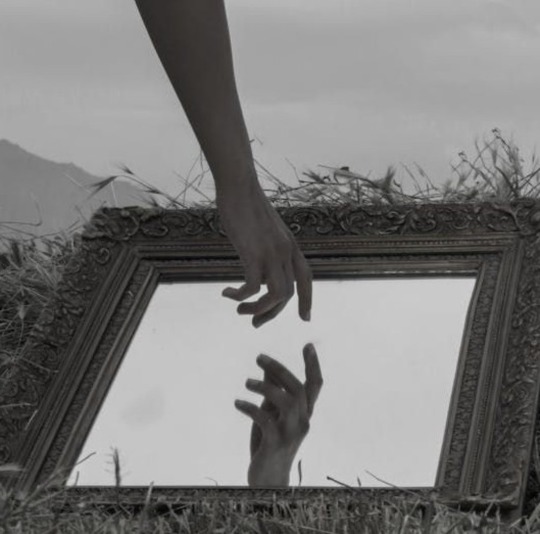
Mirrors are a big part of our lives. Mirrored surfaces, both man-made and natural exist almost everywhere. Every culture has myths regarding mirrors and I'm sure some of these we have all heard. Such as breaking a mirror is worth seven years of bad luck, that you shouldn't keep them in the bedroom, or to cover all your mirrors after someone dies, so their soul isn't trapped. Mirrors are more than just shiny bathroom fixtures, they are literal portals and amplifiers with several magickal utilities.
Trapping Energy by Charging Mirrors
Mirrors can be used to 'trap' the energy of any setting you find particularly powerful. For example: leaving your mirror close to the ocean waves or in a dark forest overnight. It will absorb the potent natural energies, then you can use the mirror in late workings as you please.
Lunar magick is another area where mirror work is ideal. Place a few mirrors under the moon to charge them with the energy of that phase. If you want to use them for a specific purpose, consider marking them with a symbol or sigil. When you need the energy of the moon, or a moon phase, you can access it as needed by using an appropriately charged mirror.
Amplification
Mirrors, like crystals, can help to amplify the power of your spells ans rituals. Keeping a mirror on your altar can bolster and increase the success of your workings. Just as focused sunlight on a mirror ignites a fire, focused magick will ignite a spell. Make sure your spell components are reflected, or better yet, perform the working on top of a mirror, to substantially increase its power.
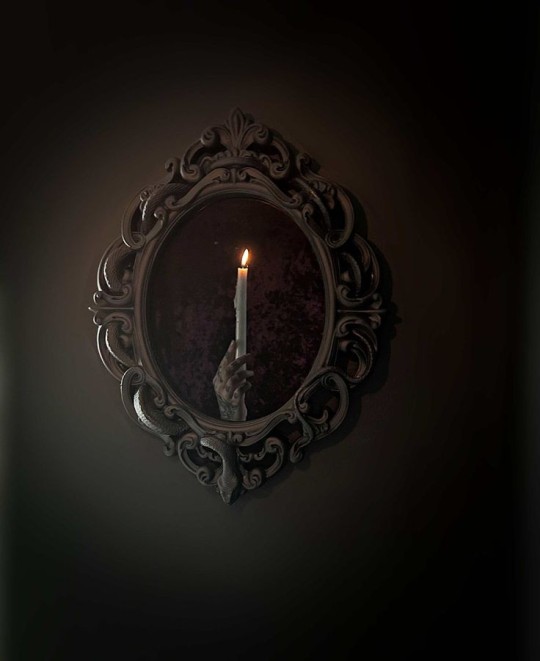
Scrying and Accessing Other Realms
When correctly utilized mirrors can be used to access messages and visions that we wouldn't normally be able to connect with. Scrying is an ancient divinatory magick that is often used as a form of fortune-telling. Traditionally, a lot of scrying was done with water, the ancient Celts and Greeks even practiced this form of divination. Mirror scrying is an evolution of these water oracles, with historical practitioners like the famous John Dee, who used highly polished silver, brass, mercury, or obsidian.
Scrying wit mirrors can be particularly powerful due to the idea that your reflection is the manifestation of your soul. When viewing your reflection, if you're well in tune with yourself, you can ask your soul questions regarding your life and development or even open up the door to another dimension entirely. Mirrors can be enchanted and sigified into being gateways in and of themselves.
Many scrying mirrors are black because one's own reflection can be rather distracting. The traditional material of a black mirror is obsidian, however you can craft your own by painting one side of a piece of glass black. Picture frames are great for this. A black mirror is the best option for scrying as you won't be distracted by your own features, leaving you open to interpret your visions.
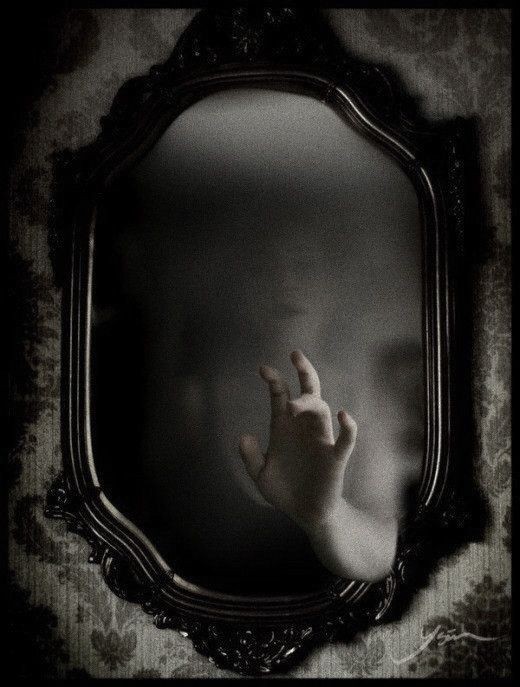
Banishing
Mirrors, as reflective surfaces and magickal conductors, are often used in banishing spells. Banishing magick can be used when someone is directing negative energy your way or you're being harassed. In this case, a mirror can be used to return bad energy back to the person who sent it.
Banishing magick can be a wonderful tool when applied to bad habits or negative thoughts as well. To banish an idea or behavior, encant something akin to: "[what you're banishing] you've caused me pain, I banish you, now stay away. Mirror help to reflect my plight, and keep [what you're banishing] out of sight". Keep the mirror close to you in order to protect you from what you're banishing.
Defense
Mirrors are also an incredibly effective defensive tool. They can deflect any negative energy, ill intent, or malevolent spirits sent your way. By placing mirrors in areas where you need the most protection, you can repel any unwanted energy trying to infiltrate your space. For added potentcy, draw a protective sigil/symbol on the mirror and/or place a protective crystal in front of it.
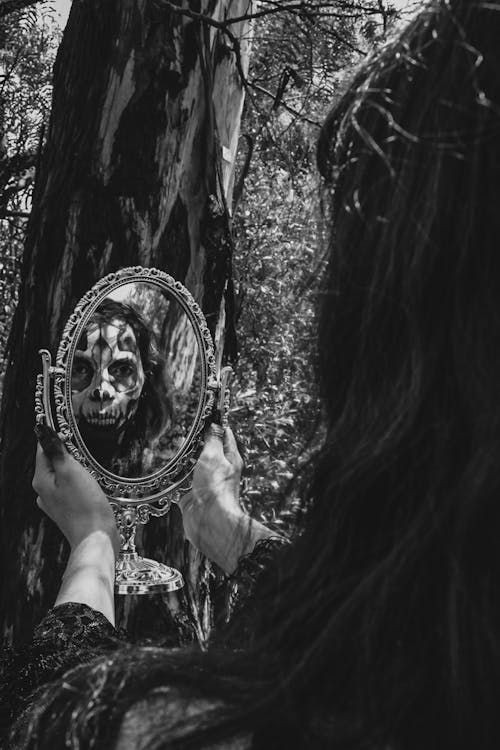
Hexenspiegal: The Witch's Mirror
A hexenspiegal is a small mirror used as a protective charm to reflect away baneful/attack magick, the evil eye, and other bad omens and intentions, as well as return the energy back to its sender. Its basis is in German folk magick. Translated, it means "witch's mirror". Hexenspiegals may be suspended from cords, fastened to walls, or, in the case of small ones, worn as jewelry. You can make your own by cleansing, decorating (optional), and sigifying/enchanting a small mirror to your intent.
#witch#magick#mirror#spell work#spellwork#spellcasting#spells#spell#folk witchcraft#folk magic#divination#scrying mirror#Scrying#spirit work#lefthandpath#dark#witchcraft#demons#satanic witch#demonolatry#eclectic witch#Pagan#witchblr#witch community
314 notes
·
View notes
Text
Personal associations/interpretations of the dark/mystical houses (4th, 6th, 8th, 12th)
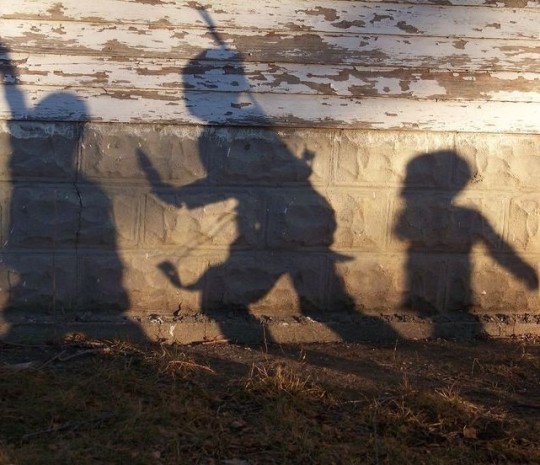

4th house
twisted tree roots, cultural practices, heirlooms, photo albums, inherited features, traditions, the mother, past lives, generational trauma, picture books, garden beds, childhood homes, ancestor altars, hand written recipe books, hearth, squeaky wooden floorboards, genealogy archives, caves, oak trees, baby wrap carriers, emotional security, cultural heritage, building foundations, photo albums, genetics, laundry lines, swing sets, property, mines, crops, sanctuaries, the chest and heart, home steads, fields, farms, root cellars, harvests, pots on stoves, brooms, backyards, agriculture, vines on trellises, handmade blankets, grandparents house, laundry baskets, attachment styles, singing lullabies, history, deep emotions, instincts, the unconscious, summer, waxing moon, vase of flowers, bath time, picking berries, celebrating holidays, chicken coops, older sisters, family gatherings, stone paths, forest walks, ancient structures/buildings, ancestral languages, cupboards, staying in

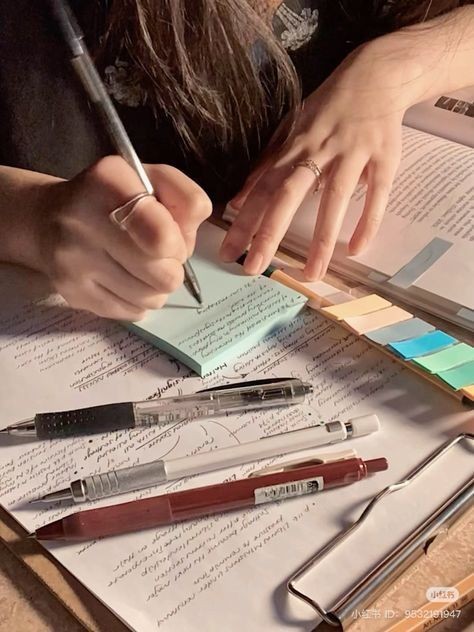
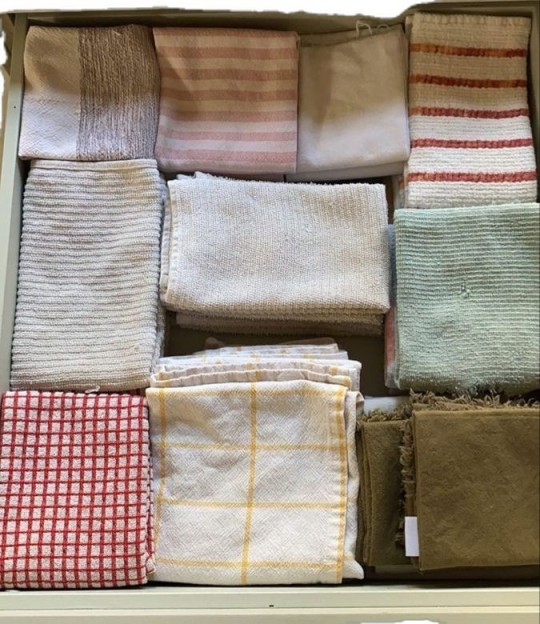
6th house
vitamins and supplements, morning routines, pharmacies, tasks and lists, doctors offices, health food stores, stomach medicine, hygiene practices, journals and planners, schedules, herbal teas, personal rituals, emergency kits, dog walks, lymphatic drainage, caregiving, donating blood, examinations and checkups, meditation, colour coordination, sticky notes, gastrointestinal problems, folded laundry, labels on everything, retirement homes, hand washing, braided hair, herb gardens, filing cabinets, face masks, kombucha, detailed diagrams, volunteer work, medicine cabinets, cleaning supplies, shelves, acts of service, skin care, organic linen, gauze and stitches, stress-induced illnesses, essential oil/herb baths, house plants, instructions, repetition, holistic medicine, giving advice, yoga studios, "gut feeling," bone broth
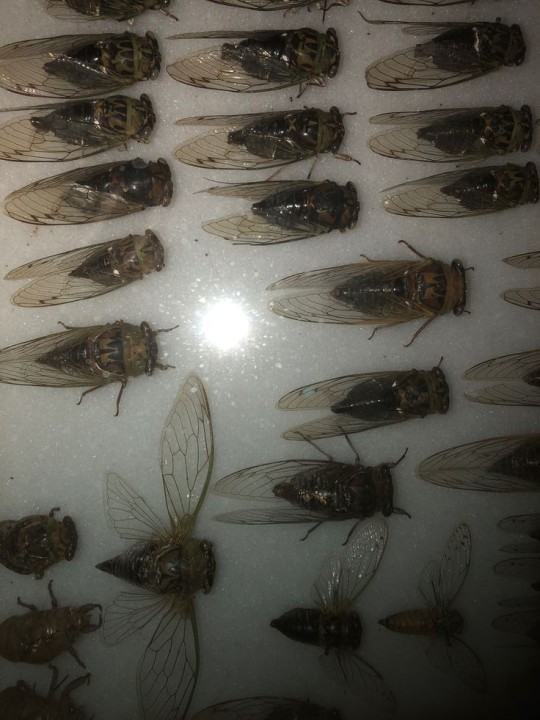
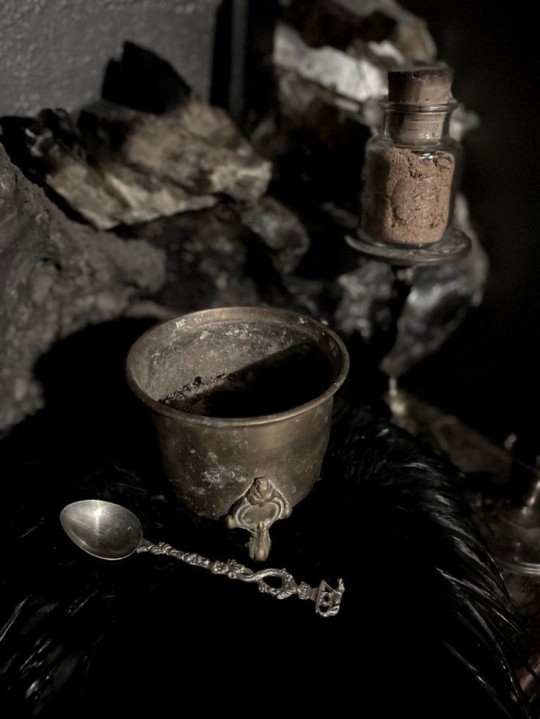

8th house
altars, divination, near death experiences, candle wax, feeling crushed by a heavy weight, grave dirt, red/dim lighting, funerals, double income, control, the underworld, cheques, insurance, heirlooms, ghost sightings, power imbalances, crime documentaries, ouroboros, bank accounts, grief and loss, shadow work, the womb, manipulation, scrying mirrors, Russian nesting dolls, keys, mortuaries, tests from the universe, pendulums, crime scene tape, the phoenix, projections, credit scores, animal bones on a forest floor, blood stained sheets, metaphysical shops, spiritual attacks, deep emotions, snakes, dead flowers, late autumn, wedding veils, envelopes, full moon, muddy boots, shadows at the corners of your vision, scarab beetles, inner processing, experiencing crisis, inherited possessions, natural disasters, sexual trauma, psychological studies, ancestral connections, cracked dolls, veil between realms, mental illnesses, deep connections, intimacy, reincarnation, torture devices, keys, whirlpools, the sound of sirens, unconscious fears, intense first impressions, pushing limits, feeling bound, scratches on walls, ten of swords

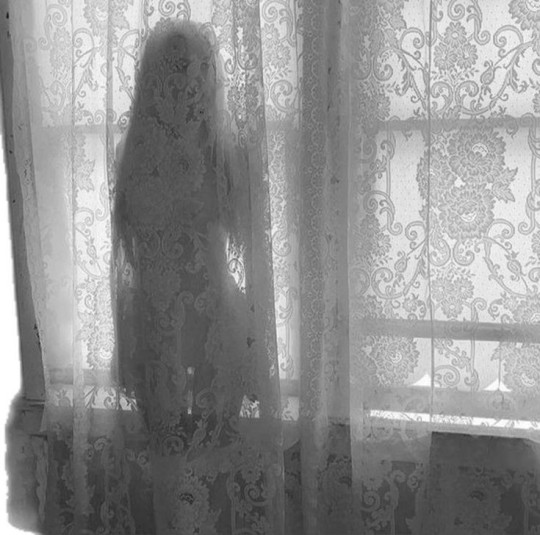
12th house
abandoned places, liminal spaces, long winters, shadowy figures, reoccurring dreams, repeated patterns, fog-filled forests, self analysation, inner worlds, cave systems, unfinished basements, hallucinations, solitary confinement, empty parking garages, spiral staircases, substance abuse, trapped in purgatory, hidden beneath the surface, maladaptive daydreaming, hospital hallways, confines of society, waning moon, moths, wandering aimlessly, disconnection from the world, psych wards, healing others, tired eyes or dark circles, chronic mental illness, suppression, addictions, hiding places, overnight shifts, unexplainable experiences, past life karma, exhaustion, cobwebs, others projections, catacombs, bird cages, premonitions in dreams, prescription bottles, self destructive patterns, late night walks, misty lakes, the feeling of walking out of the movie theater at night, identity crises, blurred faces, empty public transport, astral projection, comas, diary entries, dissociative episodes, shape shifting, generational trauma, observing people, mirrors, padded rooms, the afterlife, chain link fences, paradoxes, feeling misunderstood, repression or memory loss, hikikomori, the freeze response, disappearance, waiting rooms
#astrology#astrology community#astro tumblr#astro notes#astroblr#astrology aesthetic#4th house#6th house#8th house#12th house
253 notes
·
View notes
Text
How to Interpret Persona Charts for yourself.

Persona horoscopes help us explore specific life questions by bringing our inner archetypes into focus.
If I want to know how much strength the "warrior" in me has, how I channel my willpower into the outside world, how I release my aggression, how I fight, whether I am cowardly or brave, why I fight, and what tools I use in battle—then I prepare my Mars persona. What tools, both physical and psychological, do I wield to fight for what I want? Mars also illuminates the energy you bring to pursuits of passion, ambition, and physical vitality. Understanding this chart helps you align your actions with your deeper motivations, ensuring that your warrior spirit serves your highest aspirations.
If I want to know what role safety, insecurity, sensuality, and sexuality play in my life, and whether I am capable of enjoying what life has given me—then I prepare my Venus persona. Venus helps me understand my capacity for pleasure, love, and the pursuit of harmony. It also shows how I attract and build relationships with others. The Venus persona chart speaks to your relationship with love, pleasure, and beauty. By understanding your Venus persona, you can cultivate meaningful relationships and a deeper appreciation for life’s pleasures.
If I want to know how flexible I am, how well I can express my thoughts through language and gestures, how practical I am, what communication skills I possess, what my level of intelligence is, and how I present myself to the outside world—then I prepare my Mercury persona. Mercury reflects my adaptability, reasoning, and ability to connect ideas and people.
If I want to know what role femininity plays in my life, how I relate to emotions and the inner "child" in me, how much I long for security, and how I connect to the emotional (yin) side—then I prepare my Moon persona. With the help of the Moon persona and my natal chart, I can uncover the most important information about a person's inner world. The Moon persona is key to understanding emotional patterns and the instinctive ways I seek comfort and safety.
If I want to know how I face challenges and constraints in life, which pressures and forces I need to adapt to, what I need to accept without being able to change, and how I overcome fear—then I prepare my Saturn persona. Saturn represents discipline, structure, and the lessons we learn through perseverance and responsibility.
If I want to understand what conflicts I might face with the "demons" of the underworld, the forces of destruction, and the rejection of life—how dependent I am on different ideologies, beliefs, and visions—then I prepare my Pluto persona. Along with the Moon persona, Pluto frequently influences the deepest layers of a person's inner world. It reveals the transformative forces that shape my psyche and my relationship with power, control, and rebirth.
If I want to understand the meaning of life, how the inner "therapist" manifests in me, how I reflect on the past, and the role religion plays in my life—then I prepare my Jupiter persona. Jupiter speaks to my aspirations, spiritual growth, and the wisdom I gather through exploration and understanding.
If I want to know in which areas of life I need to free myself from the obligations that hold me back and explore how I can embrace the themes of freedom and independence—then I prepare my Uranus persona. Uranus reveals how I break free from societal norms, traditional values, and conventional boundaries. It shows where I desire independence, how I innovate, and how I pursue freedom in my life. This persona reflects the areas in which I experience rebellion or sudden changes, both imposed by external forces and initiated by myself.
If I want to explore my dreams, illusions, inspirations, and the spiritual aspects of my life—how I connect to the divine, the infinite, or the intangible—I prepare my Neptune persona. This persona also shows where I might struggle with confusion, disillusionment, or escapism. Neptune invites me to explore the subtle and ethereal dimensions of existence, asking questions such as: "Where do I experience transcendence?" and "What is my relationship with the unseen forces of the universe?" It encourages me to embrace imagination and creativity, while also warning me against losing myself in illusions or unrealistic fantasies.
Finally, if I wish to understand how I connect to the collective, how I navigate social structures, and what role I play in the greater whole, I prepare my Ascendant persona. The Ascendant represents the mask I wear in public, the first impression I make on others, and the way I engage with the world. It is the outward expression of my inner self, showing how I bridge the gap between the personal and the collective. By exploring my Ascendant persona, I can learn how I come across to others, how I handle social interactions, and how I adapt to the demands of society.
#astro observations#astrology#astro placements#natal chart#zodiac signs#persona chart#astro notes#astrology observations#asteroids#degrees#astro community#astrology notes#astrology blog#astro tumblr#astroworld#12th house stellium#stelliums#planets#sun#moon#gemini#5th house#mercury#draconic chart#venus#ascendent#uranus#saturn#neptune#jupiter
289 notes
·
View notes
Text
Points that might help you to read Tarot as a Beginner (written from the personal experiences)
Tip from personal experience- Before reading the meanings behind the cards, tap into your intuition and listen to what it tells you. You can always interpret your cards even if they don't match the traditional meanings. Make a bond with your decks, it will help you to have a more smooth Tarot journey. Always thank the cards and the Guides/Spirit Team/The Universe after you are done reading. Try to cover your head while doing the readings to prevent any additional info from downloading into your Crown Chakra.

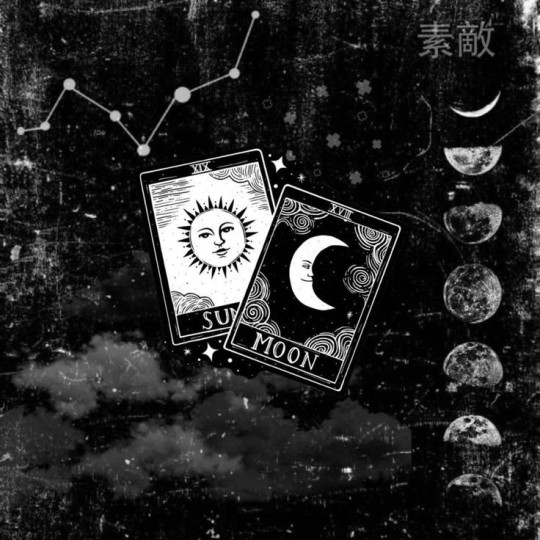
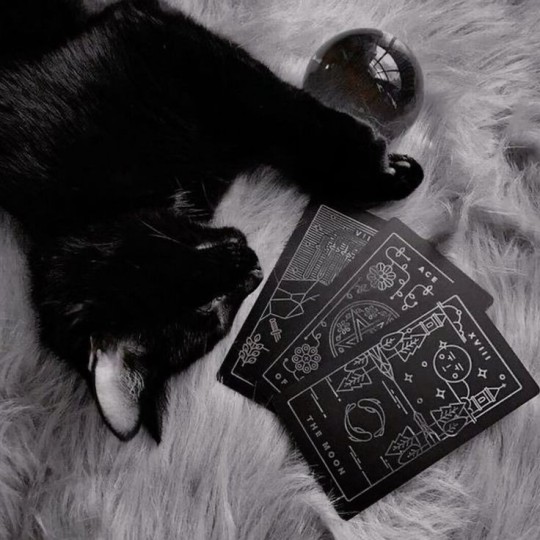
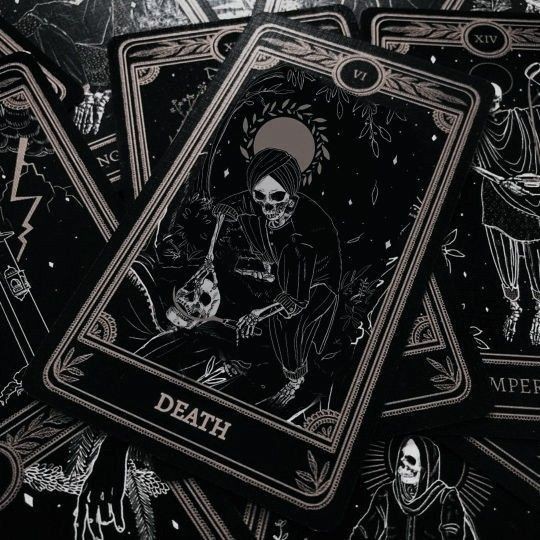
1. Focus- I cannot stress enough about the focus part while reading Tarot cards. When you are focused, you are more likely to be able to interpret the symbols on the cards accurately and intuitively easily without stressing yourself. This is because your mind is not distracted by other thoughts or worries, allowing you to connect with the deeper meaning of the cards. Plus it'll give you more clarity to listen to your intuition while you are preparing for a reading or asking cards any questions.
2. Know the meaning or Basic traditional meanings of the Tarot Cards- For this, I would suggest you start with the traditional Rider-Waite Tarot deck. While we are free to interpret the cards as we like it is also important to know the basic meanings of each card. For example: The Death card does not talk necessarily about the literal death but the transformation. To me, it looks like someone is leaving their past behind and moving on to their next phase whilst going through major transformations.
3. Practice- Practising is also a very important part of learning how to read Tarot cards. I know that sometimes it's very overwhelming to memorize it and do it again and again but practice as much as you want. It will not only help you to build confidence but also will strengthen your ability to read them easily with the help of your intuition. For starters, you can draw one daily card to reflect on its meaning. I did for a few days and wrote whatever meanings came through and later, I matched it with a few of the traditional meanings.
4. Shuffling, Cleansening, and asking your Spirit Guides- Shuffling isn't about just randomly putting Tarot cards, it's more than that. It's a kind of process that helps you to focus more on the meanings again. It will help the reader's energy to get mixed up with the Cards or Decks. Tarot cards absorb energy, I think we all know that. I didn't even let other people touch my decks for 1 year because I was scared that it would mess up my decks because I wasn't aware of the cleansing methods. You don't have to cleanse it after every read, its totally up to you ngl. If you feel, you can do it but it's not mandatory. For cleansing, you can either use smoke of herbs or sage. Some people use crystals as they place them on the top of their decks and some prefer the Full Moon night to cleanse their decks. I use the sage method because it's more convenient for me. Now, Spirit Guides- they are basically our guides in the form of Spirits that help us with their guidance and support. Every being has one spirit guide or a Spirit team assigned to them. You can connect to them through meditation or using your intuition. (It's a deep topic so maybe I'll make another post about it).
5. Do not read when you are tired- Reading Tarot cards while being tired can mess with your energy as well as your ability to concentrate to read the cards with the help of your intuition. Plus, it can even mess with your intuition and cloud it. There is also an increased risk of a negative or pessimistic outlook on the questions you are asking. For me, giving respect to the cards, I don't read them when I am feeling blue.
PS- These are from my personal experience. If you have any other variants, you are more than welcome to add them here. I will keep adding more in the future.
Thank you
Infinity ❤️




💌Paid Tarot reading Services 💌Valentine's day special Paid readings💌General Tarot Readings💌Chat with Reader on Instagram💌Ko-fi for readings and tip💌Ko-fi membership💌PAC Readings💌Paid Reading Feedbacks💌Tarot for Beginners Series
#tarot#tarot reading#tarotcommunity#tarotblr#free tarot readings#paid tarot reading#future spouse reading#future spouse tarot#tarot related#love tarot reading#tarot card reading#tarot community#tarot witch#divination#free tarot reading#tarot readings#tarot beginner#tarot blog#tarot blr#tarot divination#tarot daily#tarot for beginners#tarot guidance#tarot interpretation#tarot insights#tarot journey#shiftblr#witchblr#shifting community#artists on tumblr
157 notes
·
View notes
Text
HelPol Discourse & Ableism
A more nuanced addition to this post - which I made on a low spoons day (if you're just interested in the ableism part then scroll to the bottom).
The Dunning-Kruger Effect
“The Dunning–Kruger effect is a cognitive bias in which people with limited competence in a particular domain overestimate their abilities”
- Wikipedia
The Duning-Kruger Effect was first pointed out to me by another pagan practitioner - and in that context it was used to describe those who claim to know what is “right” or “wrong” for all practitioners within a given tradition.
This fellow practitioner (I can’t remember their name - this was at least 2 years ago) pointed out that those who are incredibly knowledgeable about a given tradition don’t tend to go around policing others practices.
Why?
Because being knowledgeable about any religious or spiritual tradition means recognizing how incredibly human made traditions are. They are loose - flexible - ever changing and ever evolving within both individual and community practice.
Now - that doesn’t mean “anything goes” within a tradition or religion, quite the opposite.
It instead means that the best way to create a cohesive tradition (or revive a cohesive tradition) is through working together as a community to discuss what is and isn’t valid praxis.
One individual (or a small group of individuals) speaking on behalf of an entire community is very rarely a good idea.
Bold “unpopular opinion” posts - telling others what is and isn’t valid praxis - is not only incredibly hubristic, but is also only going to lead to anger and infighting.
It is through conversation that we can get to the root of an issue and try to find consensus as a community.
As an example: I could make a post explaining my interpretation of, and feelings around, people worshipping Medusa. I could explain that I have negative feelings because this type of worship was not seen in antiquity. But then I could also make it clear that this is just my opinion - and that I’d be interested in hearing others points of view*
*some of those caught up in this controversy have done this, and have wrongly been demonized for it - while others have done the exact opposite, stating their opinion as law.
If someone makes a post similar to the example and you’re still going to be antagonistic or cruel - then just block that person. You’re going to save both them and yourself a lot of needless stress.
If someone makes a post that is actively inflammatory - you can do one of two things:
1. If you have the energy and bandwidth, you can engage with them in a discussion or civil debate.
2. If you don’t have the energy or bandwidth, or if OP is unwillingly to engage you in such talks, then just block them. Again - it will save you a lot of needless stress.
Lastly - we as Hellenic Polytheists need to be better about our ableism.
If there is something in our faith that is ableist (example: you must always stand with arms outstretched during ritual) then it shouldn’t be part of our faith.
Just because some people do not have any limitations on their physical mobility or mental energy - does not mean that the able-bodied way of doing things gets to be the default or “correct” way of practicing our faith.
I want to make a longer post on the ableism that is rampant in both the HelPol and wider Pagan communities - but for now I think that will suffice.
Askbox is open, as are DMs - The Temple is always open to community building, community discussion, and (civil) community debate.
Eirene - peace and farewell,
- Temple Hyacinthus
#Hellenic Polytheism#Libations#Offerings#HelPol#HelPolBlr#Paganblr#Community Discussion#Community Discourse#Dunning-Kruger Effect#The Dunning-Kruger Effect#Temple Hyacinthus#Textpost
90 notes
·
View notes
Note
what do you feel us foreigners get wrong about Greek mythology or your culture?
Where do I begin 😭:
The Gods’ Personalities
- people now often make the Greek gods as all-powerful, but often cruel, manipulative, uncaring.
- Reality: The Greek gods were deeply flawed, displaying human traits such as jealousy, anger, and deceit. They were not moral role models but forces of nature with complex personalities.
Depiction of Heroes
- that Greek heroes are all bad, sexist, misogynistic, where in reality they were often tragic figures with flaws that led to their downfall. Herakles, for example, was known for his temper and moments of madness.
The Concept of Hades
- False: Hades is often thought of as the equivalent of the Christian Hell.
- Reality: Hades is simply the realm of the dead, not a place of torment. While parts of it like Tartarus were associated with punishment, Hades itself was more neutral.
The Trojan War
- Misconception: The Trojan War was purely a historical event as depicted in the "Iliad."
- Reality: The "Iliad" and other related myths mix history and myth. The war may have a historical basis, but many details, including divine intervention, are mythical.
Simplified Depictions of the Parthenon
- Misconception: The Parthenon is often viewed as a temple for religious worship.
- Reality: While dedicated to Athena, the Parthenon was also a symbol of political power and housed the treasury of Athens.
Greek Language Misunderstanding
- Misconception: Modern Greek is the same as Ancient Greek.
- Reality: Modern Greek has evolved significantly from its ancient form, just as modern English differs from Old English.
Philosophy in ancient Greece
- Misconception: Ancient Greeks were all philosophers or deeply concerned with intellectual pursuits.
- Reality: While philosophy was important, most Greeks led everyday lives focused on practical concerns like farming, trade, and family life.
Cultural Overemphasis on Mythology
- Misconception: Greek culture is often reduced to mythology and ancient history.
- Reality: Greece has a rich modern culture, history, and traditions that go far beyond the ancient myths, including significant contributions to modern art, literature, and politics.
Overly Romanticizing Greek Architecture
- Misconception: Ancient Greek architecture, especially temples, is often seen as white marble perfection.
- Reality: Many Greek buildings were brightly painted, and they decayed over time. The pristine white image is largely a modern interpretation.
218 notes
·
View notes
Text
One of my favourite things about his dark materials is how well it creates cultures and expands upon them.
Each group of people we meet is unique, with their own traditions and taboos.
You never touch another person's Dæmon.
Scholastic Sanctuary, the fear of Dust, and the contrast between Lyra and the scholars in Jordan college.
The nomadic practices and songs of the gyptians, who I was legitimately surprised about when I learned that they weren't a real but niche culture.
Bears do not kill other bears, but also do not pick on the weak. Iorek accepts his exile with humility. He knows what he did. Plus the idea of making armour with meteorites, which are commonly found at the poles due to both magnetism and the fact that they are easily spotted in the snow.
The Magisterium, who legitimately believe they are enacting the word of god.
The north, Lyra's world's equivalent of the wild west, with balloons instead of horses.
Cittagaze, the honour of the knife, how the children have accepted their fate and try to enjoy the time they have left.
The witches, one of the most interesting interpretations of witches and druids I've seen. Not generic 'ooh wave the wand and cast magic' but instead powers far more unique and tied to the world. Separation, flight from CLOUD pines, and making yourself boring.
The Mulefa. Pullman made motorcycle gazelles and made them legitimately believable as a species.
The angels. Not a unified force, but one twisted just like the Magisterium by doctrine and lies.
I love HDM.
Edit: removed a section on Book of Dust as I have mixed feelings about it and I don't think it's relevant.
138 notes
·
View notes
Text
On Wuk Lamat's Role in the Back Half of Dawntrail
(Note: You do not have to like Wuk Lamat, you do not have to like any character, that is your business; however this post is not an invitation to expound to me on why you hate her, so if you aren't open to discussing her positively, please move along.)
Wuk Lamat is vital to the back half of Dawntrail. Her presence in the story there is both narratively and thematically important and its lack would render her character arc incomplete.
For context, I have seen some comments that there should have been less Wuk Lamat in the back half of Dawntrail. I truly don't see how that would have been possible or made sense without throwing out most of what was set up in the first half, or simply writing an entirely different story. Regardless of whether you personally vibe with her, Wuk Lamat is the main character of Dawntrail; this is her story, and it's themes and narrative beats are inextricably interwoven with her character arc.
First of all, can you imagine what people (in-universe and out) would say about her if after the attack on her people and the appearance of the dome she just... stayed in Tuliyollal with Koana and let other people do all the work? She's the Vow of Resolve. Of course she's going to be at the forefront of the action. The whole point of her choosing Koana to rule with her in a new interpretation of the tradition of blessed siblings is that they have complementary strengths, and they have a benefit that blessed siblings don't: they can be in two places at once!
Second, a big part of Wuk Lamat's journey is learning about the cultures of Tural so that she can fairly preside over them all, and in Alexandria we get to see her bring that lesson to bear in a big way when she learns about the regulators and the processing of souls. She's rattled by it but pushes past that personal reaction to say, as the Dawnservant, "Please teach me of your history and culture so that I can understand the importance of this practice." In doing so she learns critical information about the situation. This is a culture so far removed from the Turali peoples Wuk Lamat knows, and they're also a separate kingdom not technically under her rule at all, but that doesn't actually change her response. She still reaches out with curiosity and compassion, always seeking to learn and understand.
As she comes to understand Alexandria's history, she also learns the context she'll need to understand Sphene when her true motivations are revealed later. Moreover, Sphene is a very clear foil for Wuk Lamat. The Dawnservant characterized by her love for her people and her desire for their peace and happiness vs. the Endless Queen whose love for her people has been twisted into something destructive and terrible.
And then there's the narrative beats about family, and particularly the loss of parents in different ways: Wuk Lamat earning the trust of her brother's abandoned son and taking him in as family, and her being there for Erenville as he struggles to come to terms with the death of a parent (something Wuk Lamat has also experienced very recently).
And that's to say nothing of how personal Zoraal Ja's betrayal is to Wuk Lamat; of course she has confront him personally. It couldn't be anyone else (except maybe Koana, and they both seem to agree that it should be her).
The Rite of Succession is not Wuk Lamat's whole character arc; it's only the first half. It's after Wuk Lamat comes into her own as Dawnservant alongside her brother that she truly shines. It is in the back half of the story, when the stakes are dramatically raised, that all the lessons she's learned in her journey will be tested, when the peace she seeks to preserve is so brutally disrupted. We get to see her struggle emotionally with the shock of that in Tuliyollal, then rise to the challenge of leadership. How she responds to all of that is her character. It is the culmination of everything the first half of the story has set up. This is still her story.
And personally, I think it's wonderful to see a female character not only featured so prominently in the story but getting so much character development and such a complete character arc.
#wuk lamat#in this house we love wuk lamat#dawntrail spoilers#ffxiv meta#dawntrail#afk by the aetheryte
341 notes
·
View notes
Text
💀⚔️🖤 Zodiac Placements with Necromantic Gifts (The Ability to Talk to the Dead)⚰️🕸️🦇
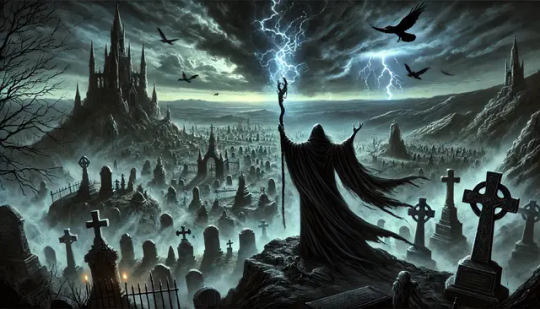
Hey everyone! Welcome to today’s post. I’ve been exploring some mystical concepts with my best friend (@witchyianuarius), and I can't wait to share with you insights about the Zodiac placements and how they might align with necromantic gifts/necromancy.
🎃 Also, HALLOWEEN ASTRO READINGS are available! Spooky season calls for spooky readings. Grab yours HERE. ๋࣭ ⭑🕸🦇
First of all, what is Necromancy?
Necromancy is a form of magic that involves communicating with the dead, typically to gain insight, predict the future, or harness the powers of the deceased. Historically, it has been associated with rituals to summon spirits or raise the dead in various cultural mythologies and magical traditions. While it often carries a darker, more occult connotation, necromancy in a broader sense refers to any practice involving the dead or death-related magic.
In some interpretations, necromancy also includes working with ancestral spirits for guidance, protection, or wisdom, and may not always be tied to negative or malevolent practices. The term itself comes from the Greek words nekros (meaning "dead body") and manteia (meaning "divination").
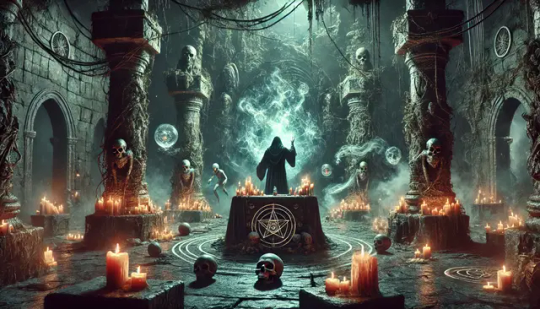
SCORPIO
Scorpio placements—Moon, Rising, and Pluto—are often associated with necromantic abilities because of their connection to death. These placements are tied to the power to navigate the boundary between life and death. With these placements, you may be naturally equipped to navigate these areas because you possess the tools to engage with this energy. You live in a psychological underworld where others fear to tread, and that’s exactly where necromantic abilities would thrive. These placements make you a natural conduit for what others consider mysterious or forbidden. It’s not a gift to be taken lightly, but it’s one that gives you the power to see beyond the surface.
SCORPIO MOON
The Moon governs your internal world, so when placed in Scorpio, it opens a window into the mysteries of life and death. Scorpio’s influence means you feel things others are afraid to acknowledge. You have a natural connection to what is hidden—whether it’s your own shadow, other people’s emotional undercurrents, and in this case, even the lingering energies of the deceased. Necromancy, the practice of communing with the dead, finds a symbolic home in this placement because you don’t fear death, it feels natural for you to explore these spaces, even if it's just on an intuitive level.
SCORPIO RISING
As a Scorpio Rising with Gemini in the 8th house, you may have a natural inclination toward transformation and exploring the unseen, including a deep interest in the ways you can communicate (Gemini) with energies beyond this realm (8H). With Scorpio Rising, you may also be drawn toward what others ignore or bury—often involving pain or unresolved issues from the past. This interest can extend to ancestral matters, which ties directly into necromancy: working with spirits and bringing the past into the present.
PLUTO IN SCORPIO
Pluto, as we all know, is the planet of death, rebirth, and transformation. In Scorpio, this energy is amplified to its highest potential. Pluto's placement here suggests a strong connection to the forces that govern life and death. You may feel a drive to control or understand these realms, even subconsciously. Pluto’s influence encourages you to embrace these energies, often leading to personal transformation through encounters with death or crises. This energy pulls you into the depths, demanding that you face death— metaphorically, through constant cycles of death and rebirth in your own life.
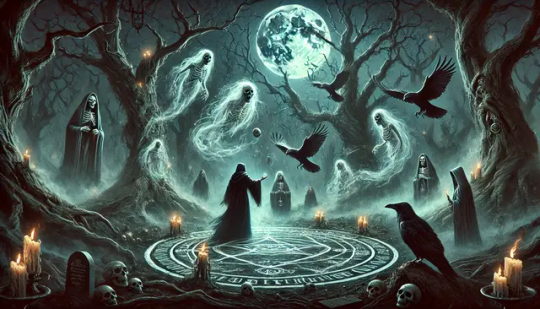
CANCER
Cancer placements, especially Moon and Rising, have a deep connection to necromantic abilities because of Cancer’s connection with the past and the unseen. Cancer is ruled by the Moon, which governs emotions, intuition, the subconscious–these qualities naturally align with necromantic practices, which involve communicating with the dead and understanding the subtle energies that linger beyond physical life. Your ability to feel what others ignore makes you a natural conduit for communicating with the dead, though it often manifests emotionally or through visions.
CANCER MOON
If you have a Cancer Moon, your emotional world is tied to memory and deep emotional currents. Cancer Moon is the most intuitive and emotionally sensitive of the lunar placements, making you highly attuned to what’s hidden beneath the surface—emotions, unspoken words, and energies from the past. Necromancy, at its core, deals with the dead, but it also involves retrieving what has been buried, either emotionally or spiritually. Your Cancer Moon allows you to feel these energies, often sensing unresolved issues from the past, whether they come from family, ancestry, or even the lingering presence of those who have passed on. This emotional receptivity makes it easier for you to connect with spirits or the dead because you can tap into these unseen emotional frequencies.
Additionally, the water element of Cancer, associated with intuition and the emotional body, plays a role here. Water signs are known for their psychic receptivity, and Cancer, in particular, has a lunar connection that heightens this. If you have a Cancer Moon, you may find that your dreams are filled with symbols or messages from the past, from deceased loved ones, or even from ancestors you’ve never met.
CANCER RISING
Having a Cancer Rising represents a deep pull toward the past. You’re drawn to ancestral roots and the emotional imprints left by those who came before you. This inclination toward lineage places you in a natural position to engage with necromantic practices. You intuitively seek to heal or resolve what has been left unresolved.. So, as a Cancer Rising, you might carry the past with you and instinctively work to reconcile what lingers.
You might find yourself emotionally connected to old places, objects, or stories that carry the energy of those who have passed on–your natural empathy makes you a bridge between the living and the dead. You may even feel a pull to comfort or care for the spirits of those who still linger in some form.
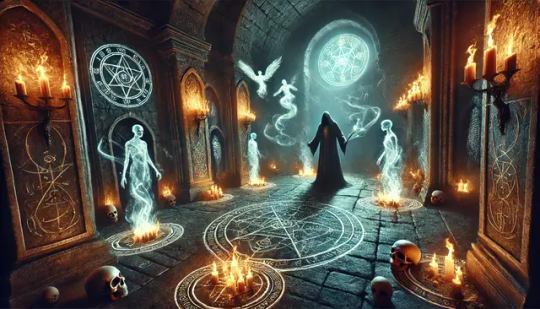
8H PLACEMENTS
The 8th house is traditionally associated with death and the mysteries of the unseen, which gives it a strong connection to necromantic abilities. When planets like Mercury, Jupiter, and the Moon are in the 8H, they draw your attention to these themes and influence how you engage with the occult. Mercury gives you the intellectual curiosity to explore and communicate with the dead. Jupiter expands your understanding of death as part of a larger spiritual framework, and the Moon connects you emotionally and intuitively to the energies of those who have passed.
8H MERCURY
With Mercury in the 8th house, your mind naturally gravitates toward the unknown and the taboo. Mercury governs communication and thought processes, and in the 8th house, it’s drawn to secrets and the unseen realms, including death and the afterlife. Necromancy, at its core involves communication with the dead, so your 8H Mercury can give you the ability to explore these areas intellectually and intuitively. You might even be fascinated by the idea of what happens after death, and you can sense unspoken or hidden energies, which is critical in necromantic practices. This placement allows you to connect mentally with the energies of those who have passed, whether through active rituals or simply an attunement to the energies that others might ignore.
8H JUPITER
Jupiter in the 8th house broadens your understanding of death and the occult. You’re likely to see death as part of a larger, interconnected cycle, or you may feel drawn to study ancient practices or spiritual systems that involve communication with the dead. If you do have necromantic abilities, Jupiter’s influence might also attract opportunities for you to learn or teach about these hidden aspects of life. Overall, I’ve noticed that 8H Jupiter makes for great occultists.
8H MOON
Moon in the 8H pulls you toward the emotional depths of transformation and death. You may sense the presence of the dead on a gut level or feel emotional/psychic echoes of those who have passed. 8H Moon can make you sensitive to the emotional residue left by others, whether it's spirits or the emotional energy tied to past events. You may also find yourself emotionally attuned to ancestral energies or feel that you’re carrying emotional patterns from those who have passed. This emotional sensitivity allows you to tap into the unseen energy that lingers after death.
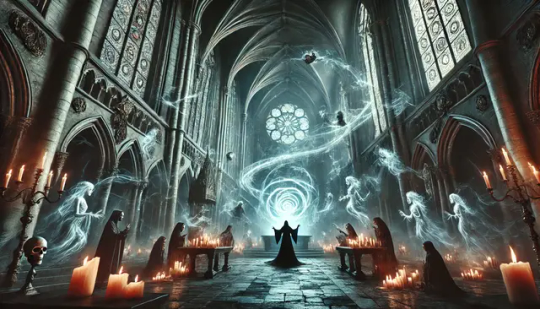
PLUTO CONJUNCTIONS
Pluto conjunct the Moon and Mercury conjunct Pluto strongly indicate necromantic abilities because these planetary alignments connect deeply with themes of death and communication with the unseen. They allow you to engage with death on both emotional and intellectual levels. The Moon’s emotional depth and Pluto’s transformative energy make you sensitive to the unseen, while Mercury’s intellectual nature combined with Pluto’s power over death helps you articulate or understand the energies of those who have passed.
PLUTO CONJUNCT MOON
This conjunction creates an emotional connection to what others fear: the darker aspects of life, death, and what lies beyond. Having this placement opens up your emotional sensitivity to the energies of those who have passed, into the spaces where life and death blur. The Moon governs your subconscious and instincts, and with Pluto’s influence, those instincts naturally turn toward the mysteries of the underworld.
Pluto conjunct the Moon also amplifies your ability to engage with the concept of death on an intimate, personal level. This placement may bring experiences where you confront death directly, not just in a literal sense but emotionally and psychologically. It can lead to a heightened awareness of ancestral energies or unresolved emotions tied to those who have passed. This deep emotional connection to death is where necromantic abilities start to show themselves, therefore you may have the emotional depth to communicate with or feel the presence of those who are no longer living.
PLUTO CONJUNCT MERCURY
Mercury conjunct Pluto links your communication and thought processes directly to the occult. Your mind naturally gravitates toward the deeper, hidden aspects of life. You’re drawn to mysteries, secrets, and what others avoid discussing—death, in particular. You have the ability to mentally process and understand the unseen, perhaps even receiving messages from those who have passed or intuitively knowing things that others cannot explain.
This Mercury-Pluto conjunction also gives you the power to communicate beyond the physical. Your mind becomes a tool for navigating these hidden realms, making you capable of deciphering hidden messages or energies–and your communication abilities allow you to bridge the gap between the living and the dead, even if that happens more intuitively than explicitly.
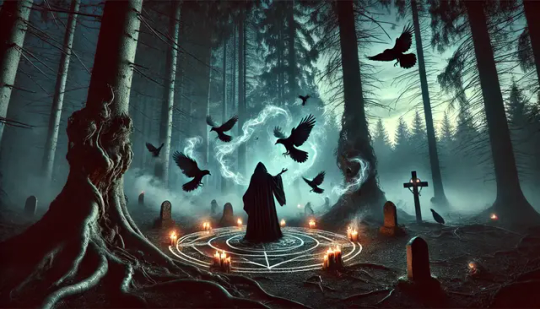
NATAL MERCURY RETROGRADE
Mercury governs the transmission of information, while retrograde periods shift the flow of that energy inward, often causing disruptions or delays in the external world. However, these disruptions also open pathways to the past, hidden or unresolved matters, and to what lingers beneath the surface of our usual conscious awareness.
Mercury Retrograde can be seen as a window into necromantic abilities because it draws you into communication with the past—whether that involves unresolved emotions or even spirits. Think of how during a retrograde, Mercury’s usual forward motion is reversed, metaphorically pulling you backward in time. This reversal can make you more attuned to subtle energies, including those left behind by the dead. Mercury Retrograde also slows down communication, and this slowing effect can be useful in necromantic work. Communication with the dead, or with energies beyond the physical world, often requires patience, stillness, and the ability to listen deeply. The external confusion or delays during retrograde periods might be irritating in daily life, but they also create space for introspection and spiritual attunement. When you’re less focused on rapid, clear communication in the physical world, you have more energy to tune into subtle, often overlooked messages.
In archetypal terms, Mercury is the messenger, traditionally seen as the guide between worlds, including the underworld. When retrograde, Mercury’s usual role as a straightforward communicator shifts into a more "shadow-y" one, making it more likely to bring up messages from the unconscious and the dead.
˚₊‧꒰ა ☆ ໒꒱ ‧₊˚˚₊‧꒰ა ☆ ໒꒱ ‧₊˚˚₊‧꒰ა ☆ ໒꒱ ‧₊˚˚₊‧꒰ა ☆ ໒꒱ ‧₊˚˚₊‧꒰ა ☆ ໒꒱ ‧₊˚
Thank you for taking the time to read my post! Your curiosity & engagement mean the world to me. I hope you not only found it enjoyable but also enriching for your astrological knowledge. Your support & interest inspire me to continue sharing insights & information with you. I appreciate you immensely. • 🕸️ JOIN MY PATREON for exquisite & in-depth astrology content. You'll also receive a free mini reading upon joining. :)
˚₊‧꒰ა ☆ ໒꒱ ‧₊˚˚₊‧꒰ა ☆ ໒꒱ ‧₊˚˚₊‧꒰ა ☆ ໒꒱ ‧₊˚˚₊‧꒰ა ☆ ໒꒱ ‧₊˚˚₊‧꒰ა ☆ ໒꒱ ‧₊˚
#astro community#astro observations#astrology#astrology signs#horoscope#zodiac#scorpio#cancer zodiac#8th house#astrology tips#astro placements#astroblr#astrology community#astrology blog#zodiac observations#zodiac signs#moon sign#pluto
153 notes
·
View notes
Text
Why You Should Learn Multiple Divination Methods

Divination is a powerful tool for gaining insight, guidance, and clarity in life. While many practitioners have a preferred method, learning multiple forms of divination offers unique advantages and deepens your spiritual practice. Here’s why expanding your divinatory skill set is beneficial.
Different Tools for Different Questions
Each divination method excels in certain areas. By knowing more than one, you can choose the most effective tool for each situation, for example:
• Tarot provides in-depth storytelling and psychological insight.
• Runes offer direct, ancient wisdom with a no-nonsense approach.
• Pendulum dowsing gives quick yes/no answers for direct guidance.
• Scrying (mirrors, water, flames) connects you with visions and subconscious messages.
Having multiple techniques allows you to select the best one for your needs.
Cross-Validation for Stronger Readings
Using multiple forms of divination to confirm a message strengthens its reliability. If tarot, runes, and pendulum dowsing all point to the same answer, you can be more confident in your reading.
Adaptability in Different Environments
Some divination methods require more space or time than others. Having multiple techniques lets you practice divination anywhere, for example:
• Tarot and runes are great for detailed readings but require physical tools.
• Numerology or astrology can be done mentally when you’re without tools.
• Pendulums and scrying can be subtle enough for on-the-go divination.
Deeper Understanding of Symbolism and Intuition
Each system has its own symbolic language. Learning multiple forms of divination enhances your ability to recognize patterns and messages from the universe. For example:

• Studying astrology deepens your understanding of tarot’s planetary influences.
• Learning numerology helps with interpreting numbers in divination spreads.
• Scrying sharpens your intuitive abilities for other methods.
The more symbols and correspondences you understand, the stronger your divinatory skills become.
Personal and Spiritual Growth
Every divination system has its own philosophy and historical roots. By exploring multiple methods, you:
• Gain a broader perspective on the unseen forces in your life.
• Connect with different spiritual traditions and expand your knowledge.
• Strengthen your intuitive and psychic abilities through diverse practices.
Enhanced Connection with Spirits and Deities
Some deities or spirits prefer specific divination methods. Expanding your knowledge allows you to communicate more effectively with different energies.
• Hekate is often associated with scrying and key-based divination.
• Odin, a god of wisdom, is connected to the runes.
• Mercury/Hermes aligns with dice and lot casting.
• Many demons are associated with divination practices, such as Gremory, Dantalion, Flereous, Delepitore, and more.
Having multiple methods lets you tailor your practice to your spiritual allies.
Avoiding Divination Burnout or Bias
Using only one form of divination can sometimes lead to mental fatigue or a fixed perspective. Switching between different methods keeps your practice fresh and prevents over-reliance on a single tool.
Knowing multiple forms of divination makes you a more well-rounded and adaptable practitioner. It strengthens your intuition, deepens your spiritual connections, and gives you access to the best method for any question or situation.
Types Of Divination

#divination#tarot#scrying#runes#pendulum#Methods#Techniques#third eye#witch#magick#witchblr#witch community#eclectic witch#eclectic pagan#eclectic#pagan#esoteric#occult#deity work#spirit work#witchcraft#knowledge#new witch#baby witch#chaos witch#satanic witch#divination witch#psychic abilities#fortune telling#premonitions
147 notes
·
View notes